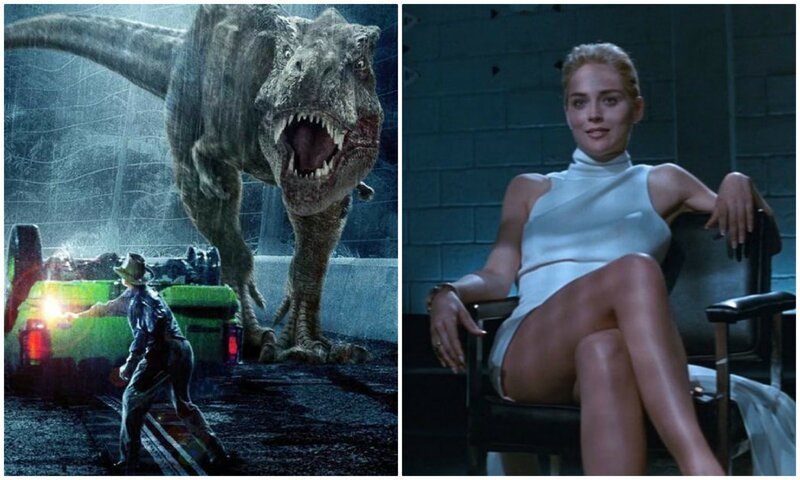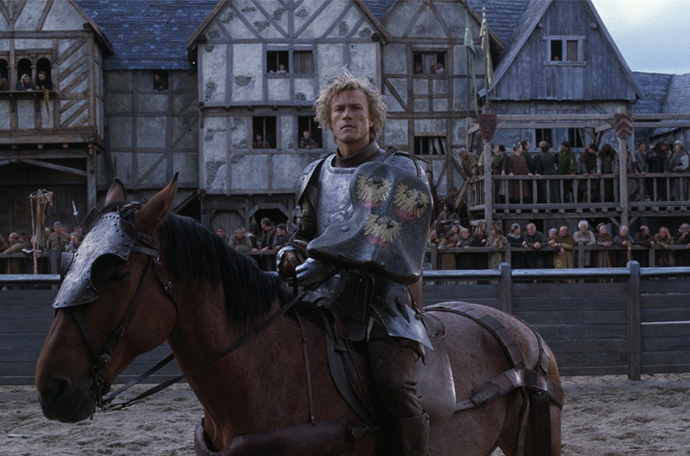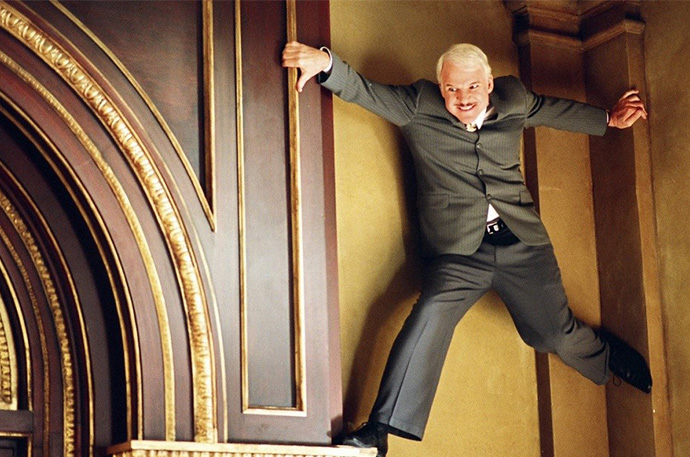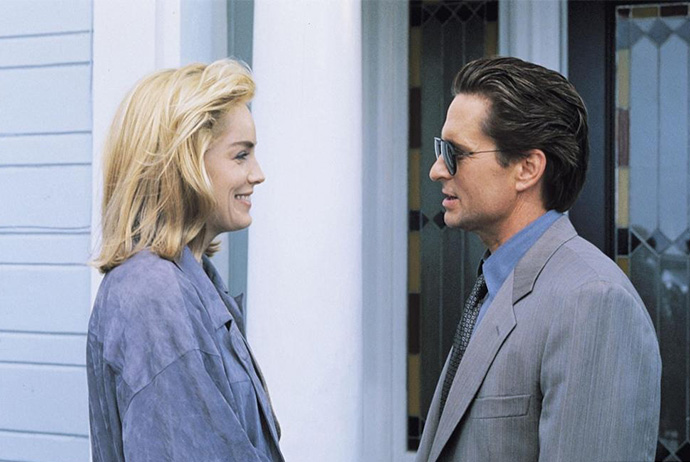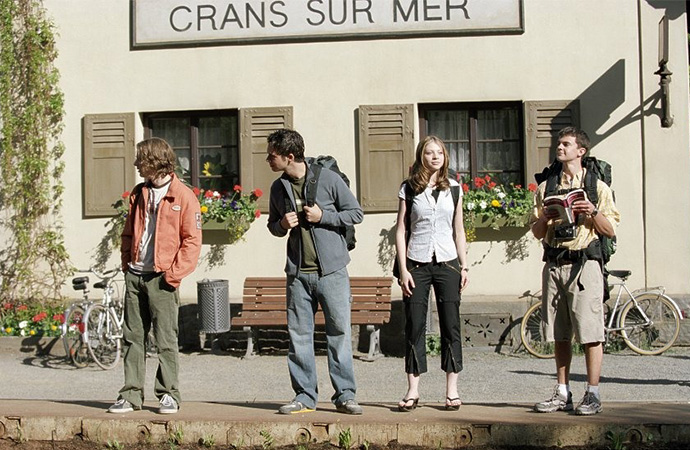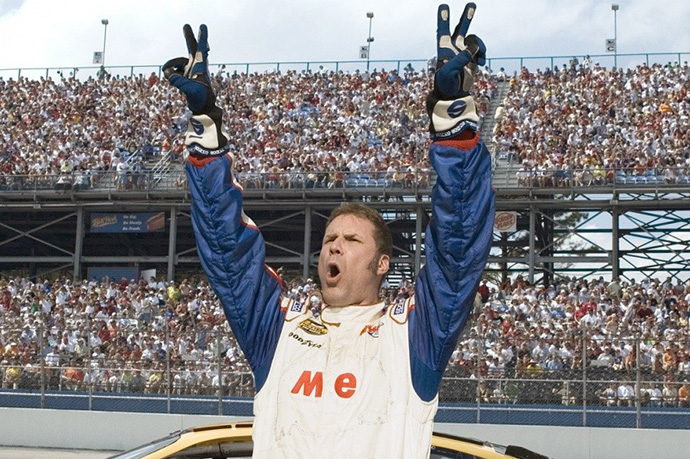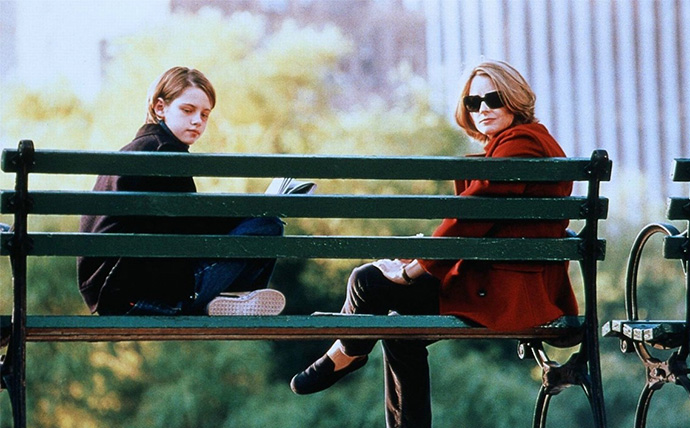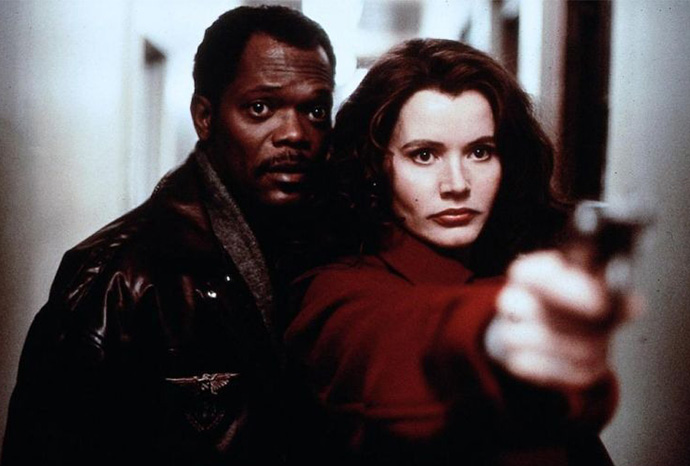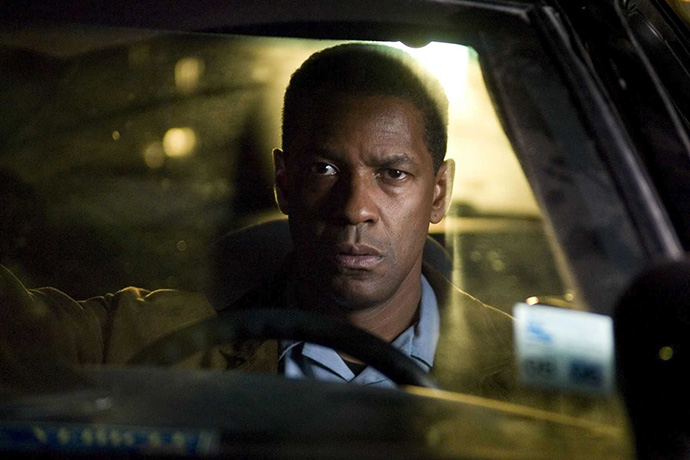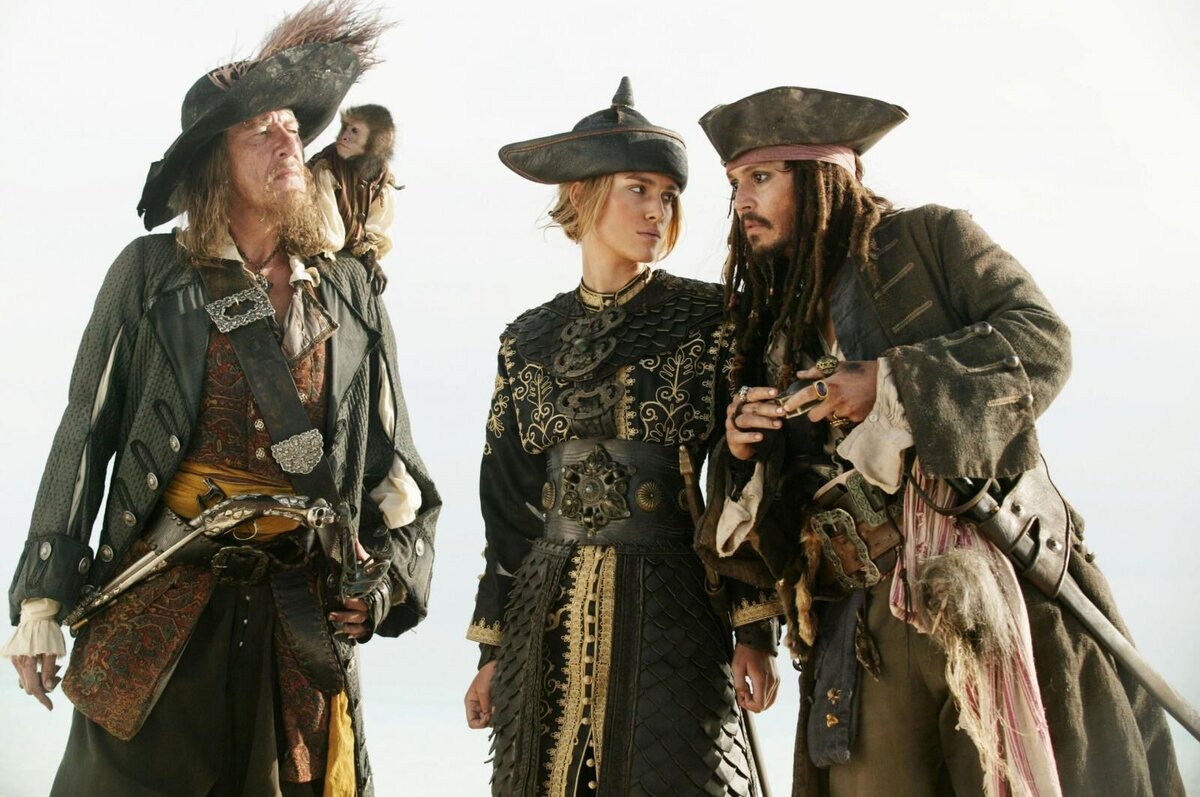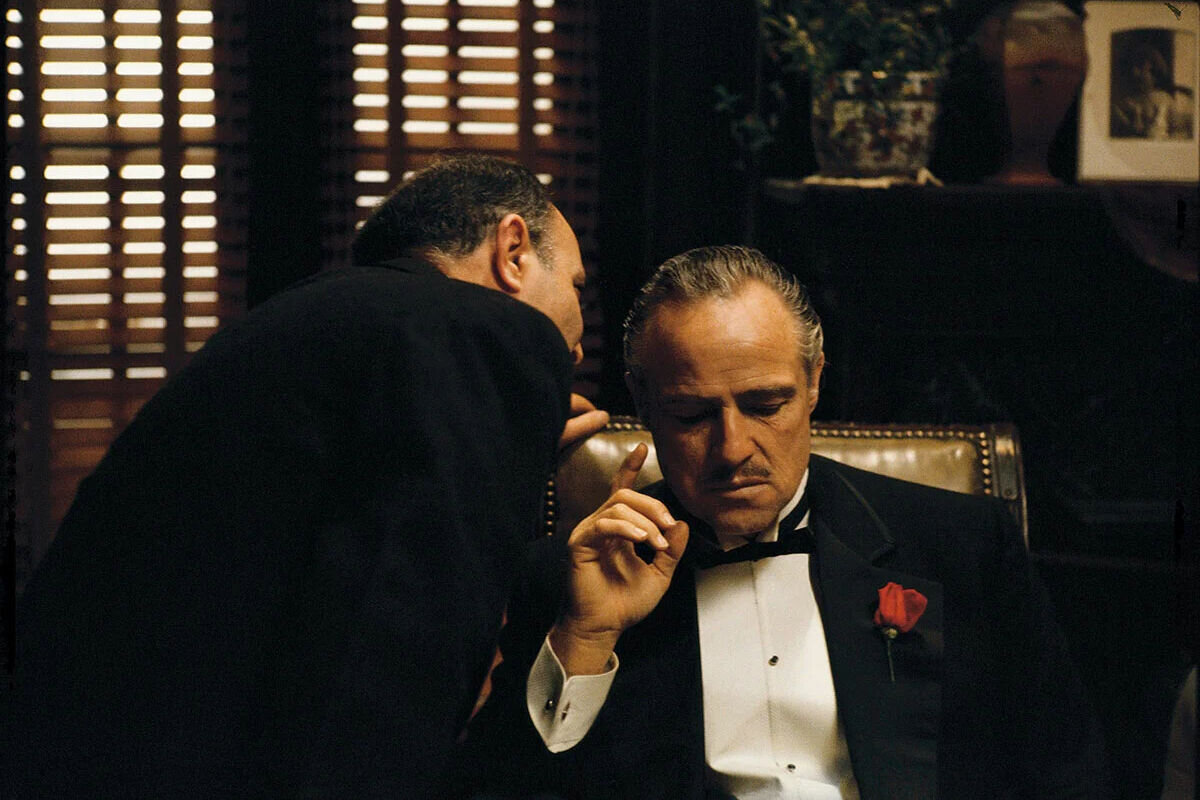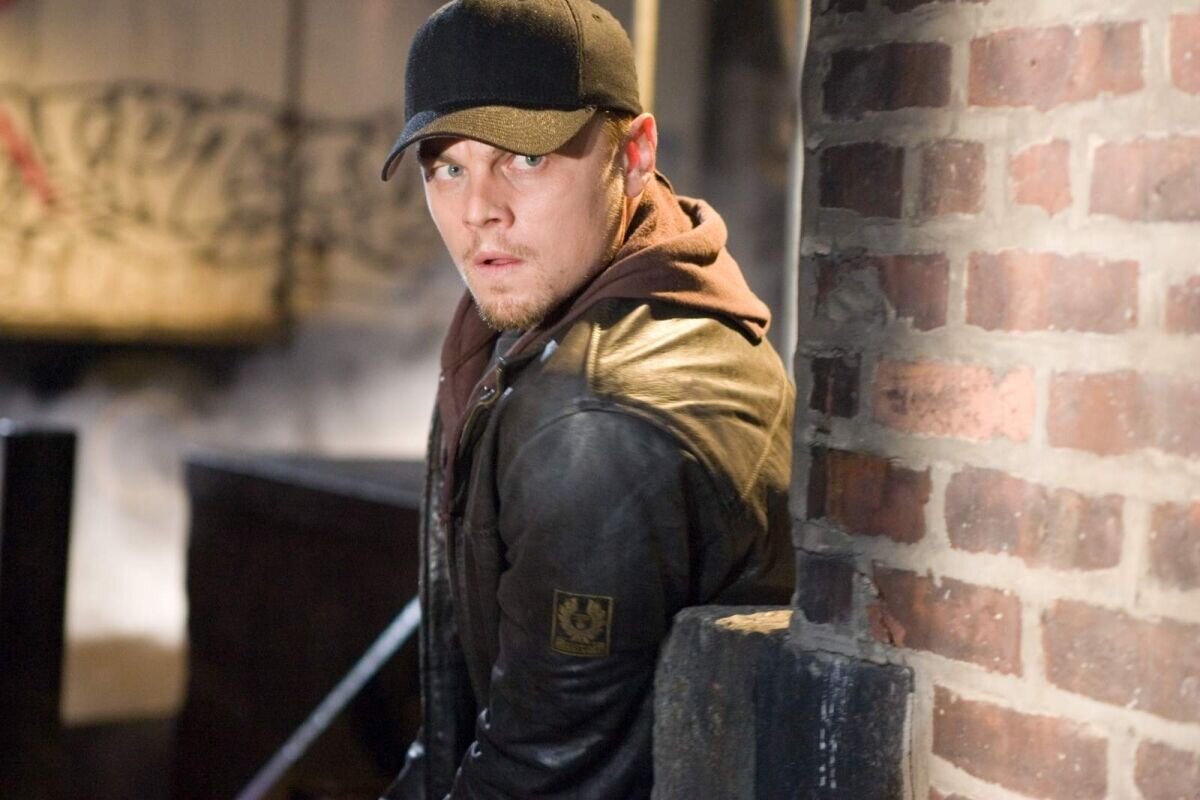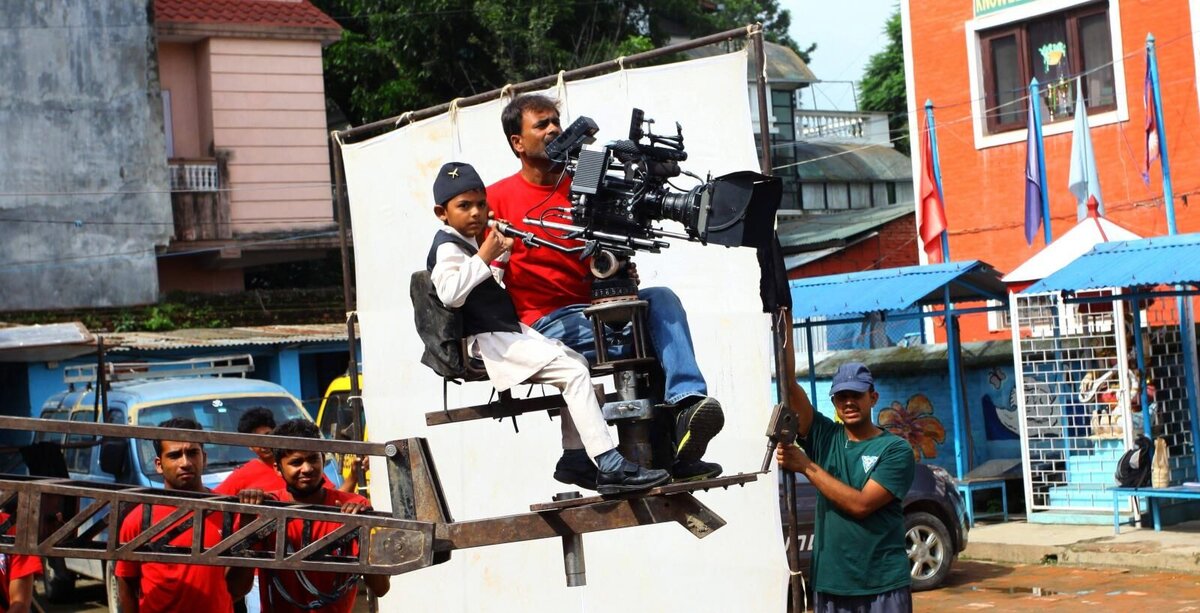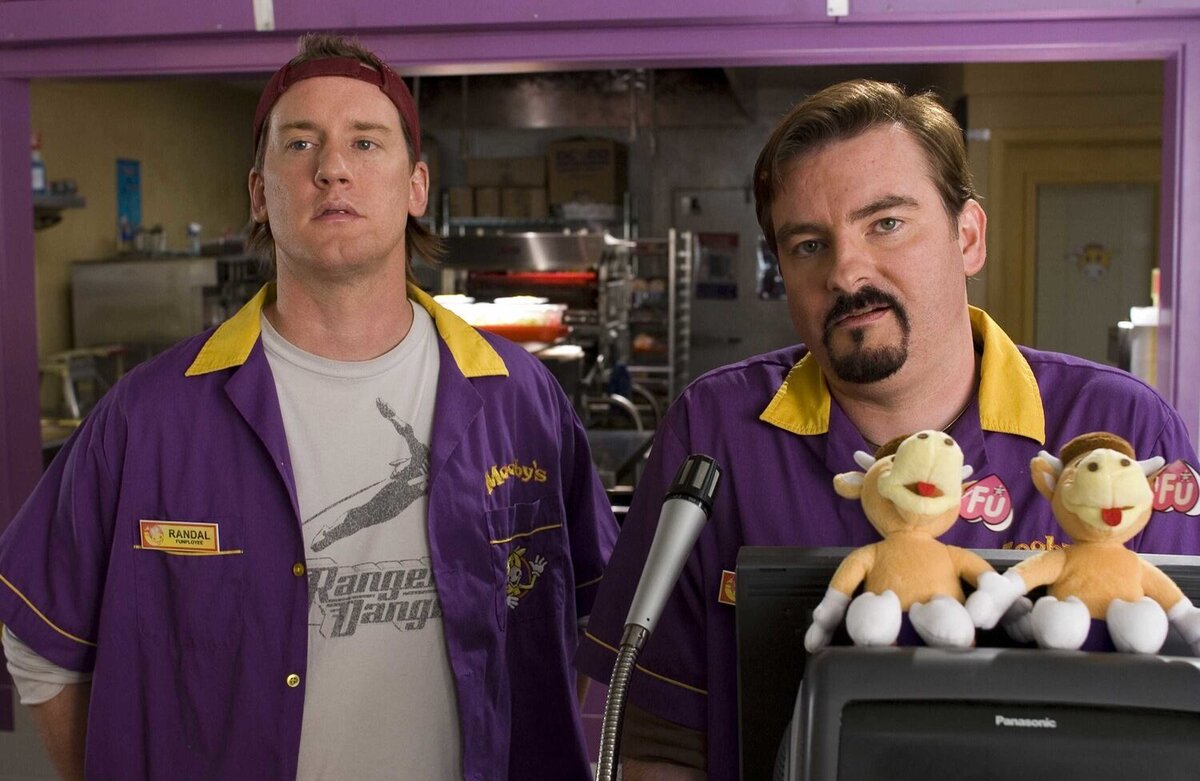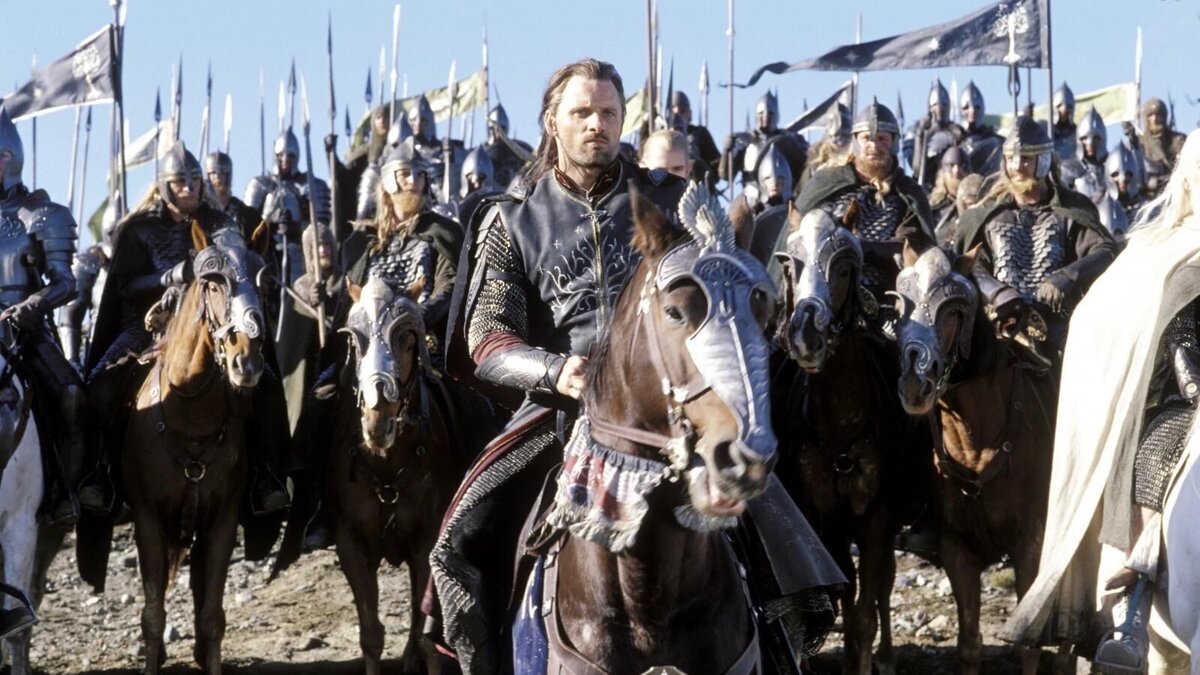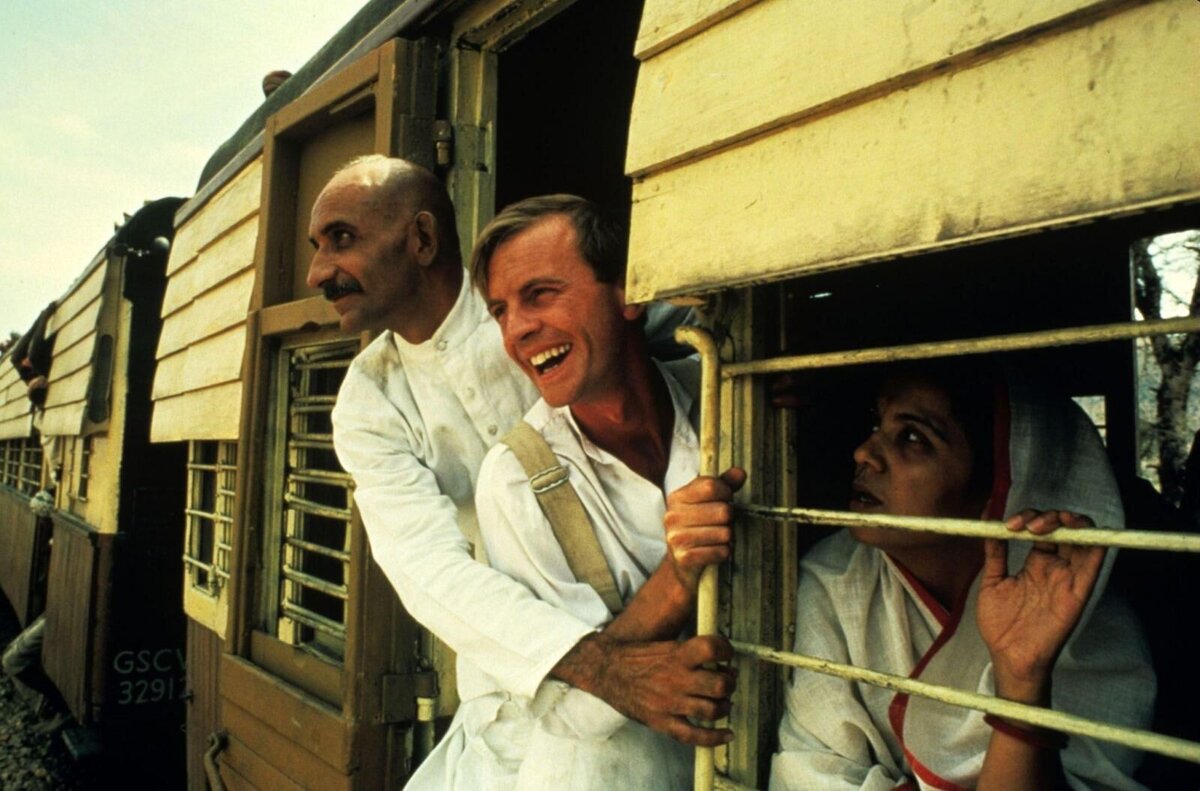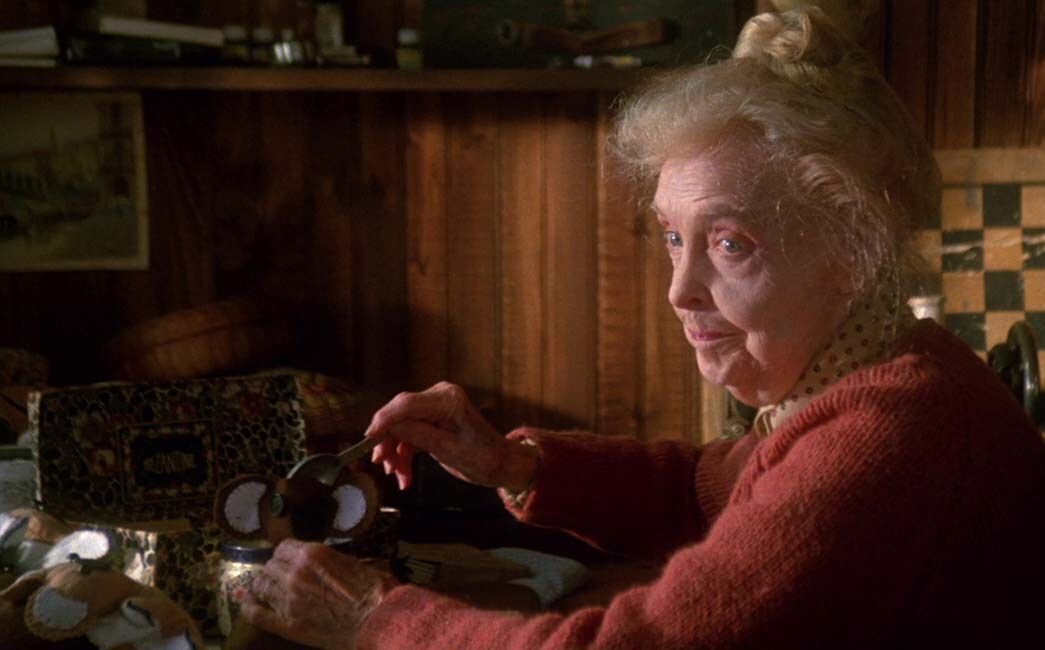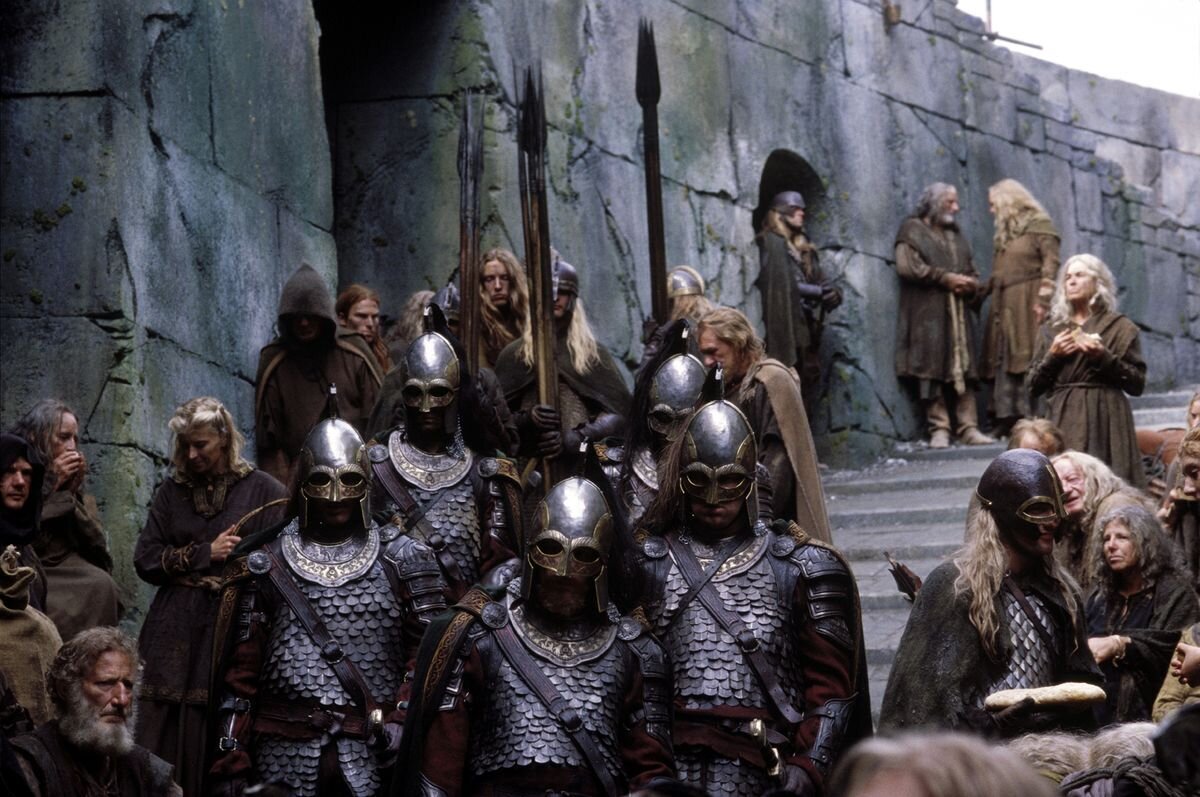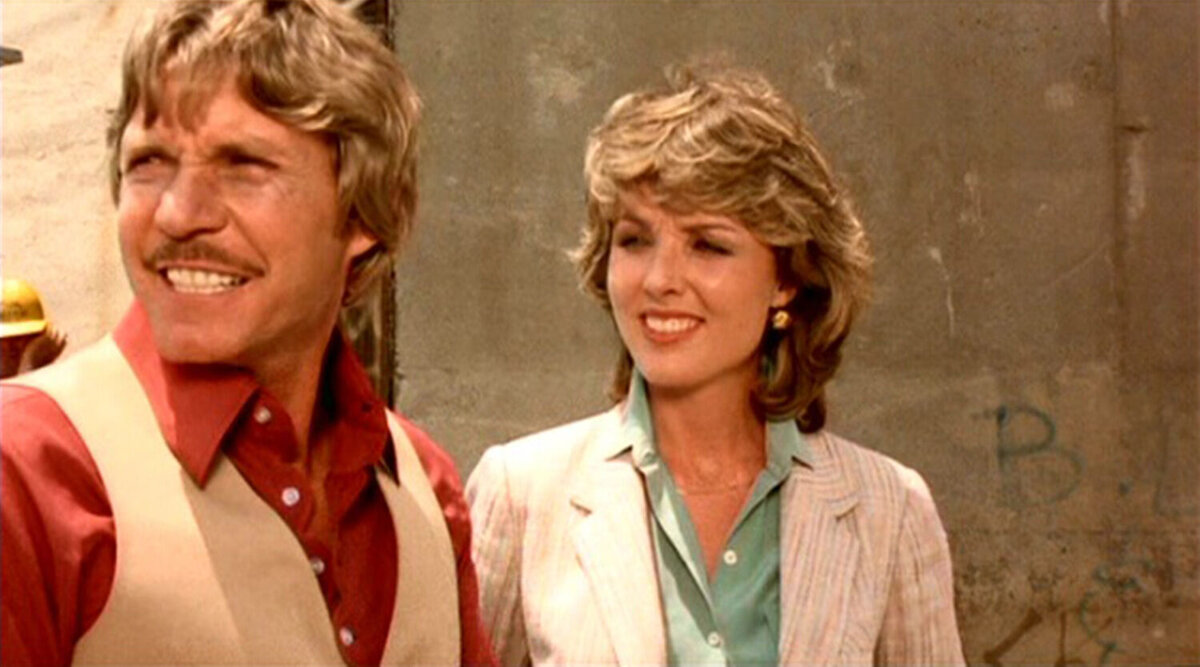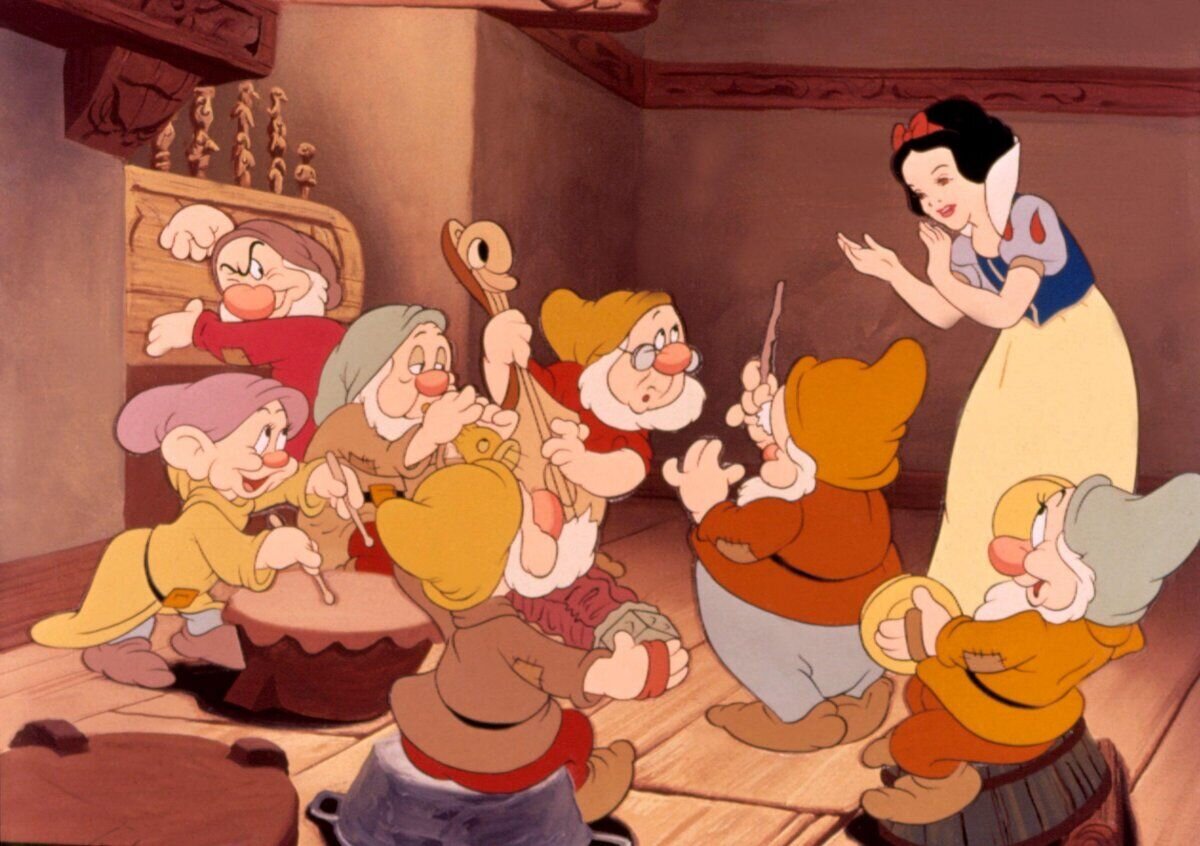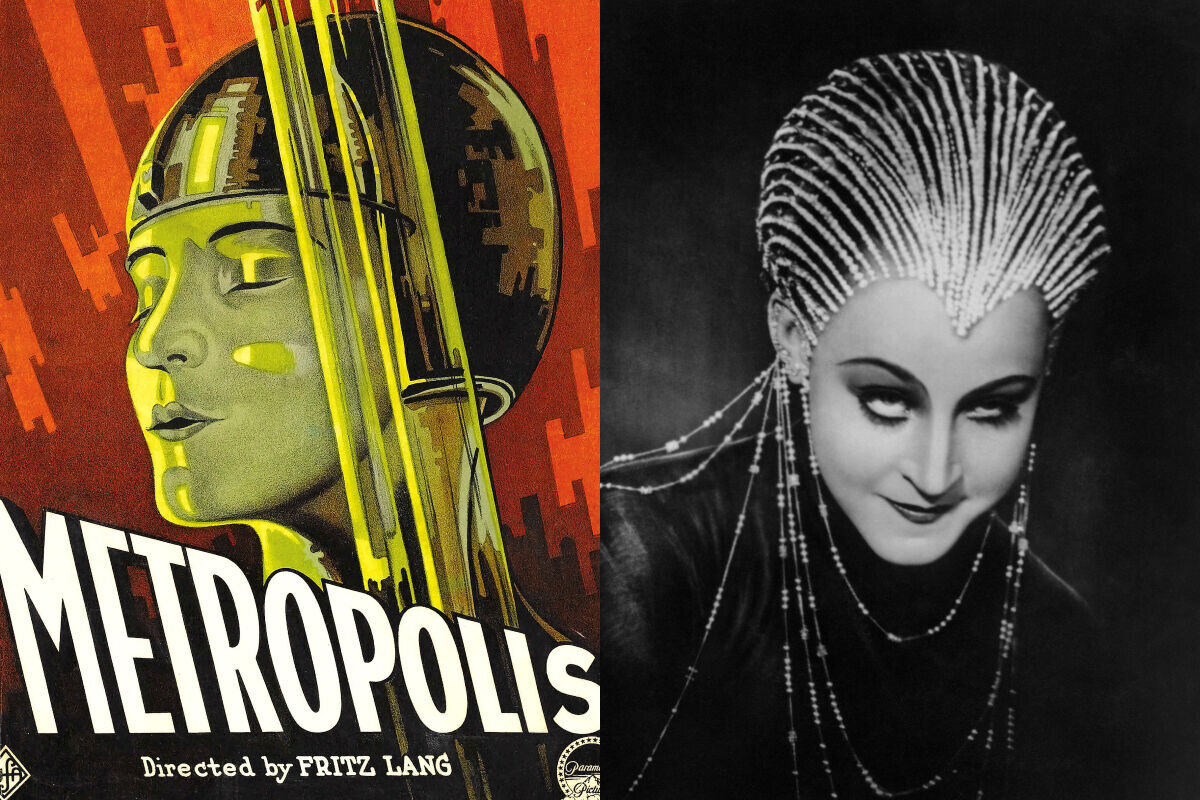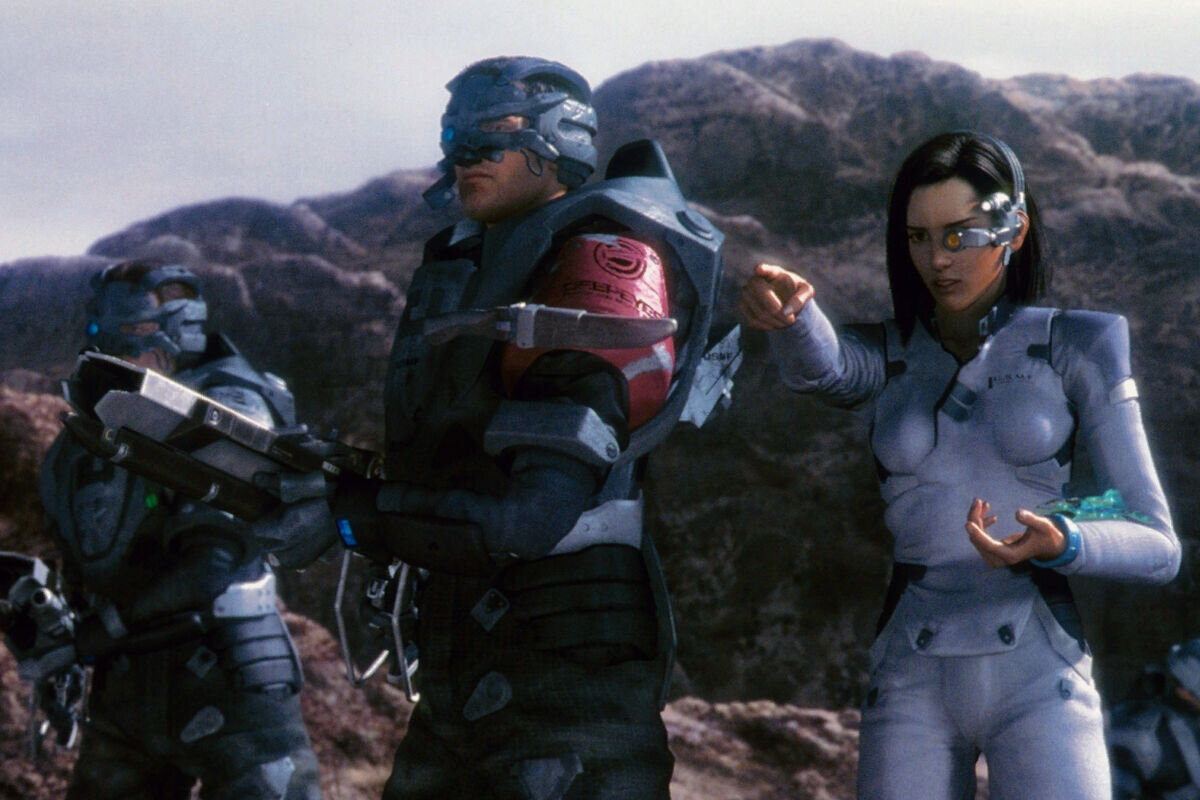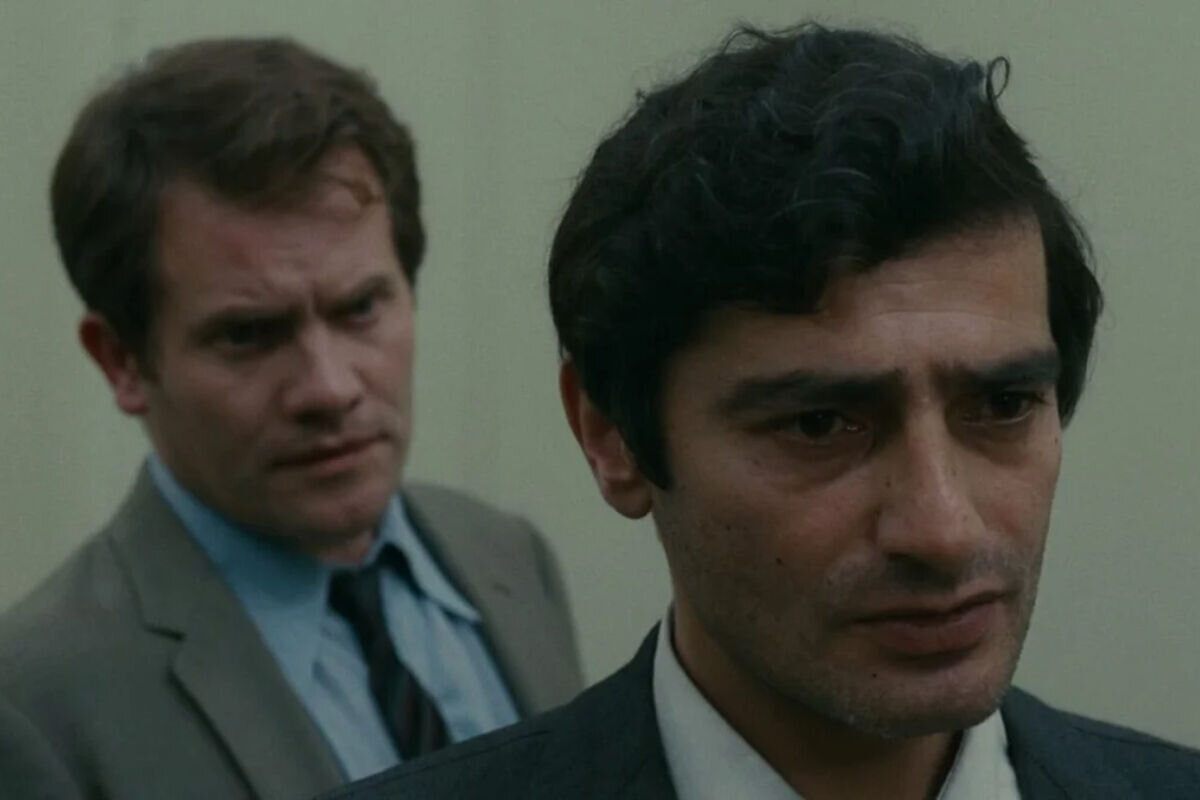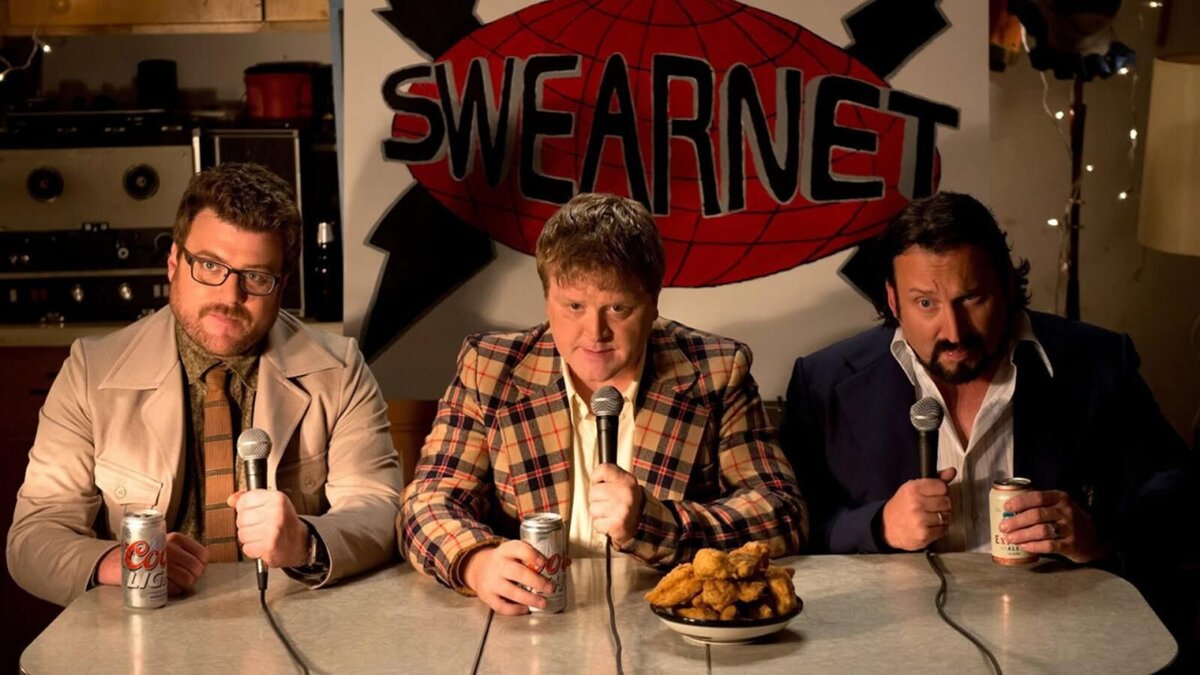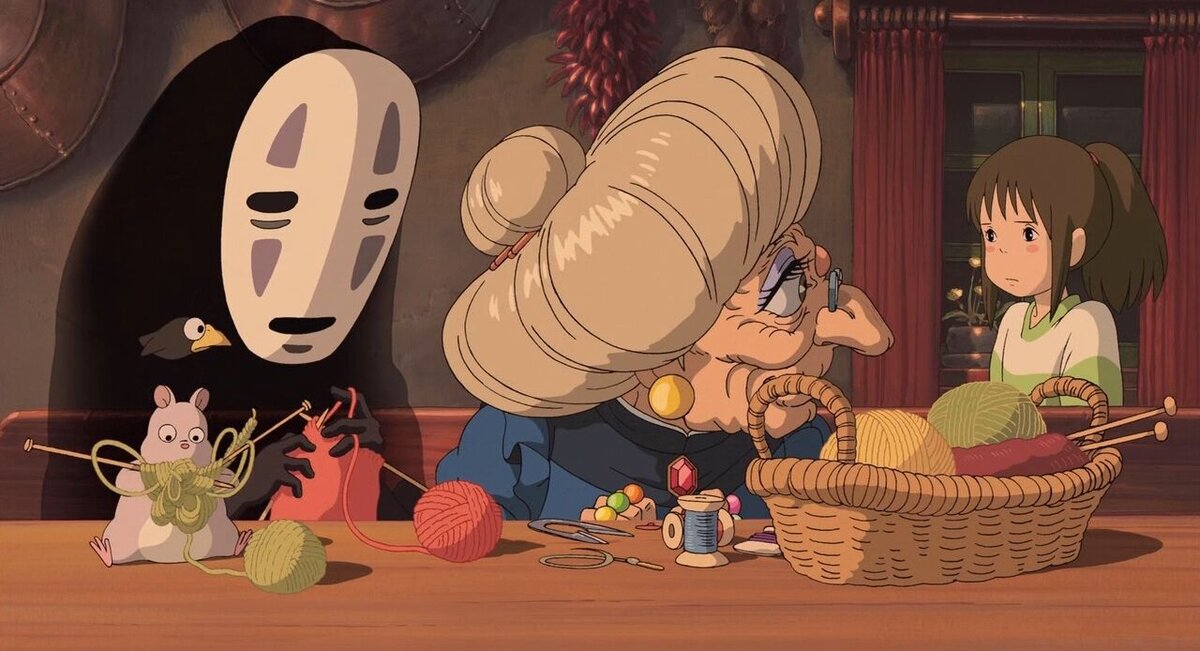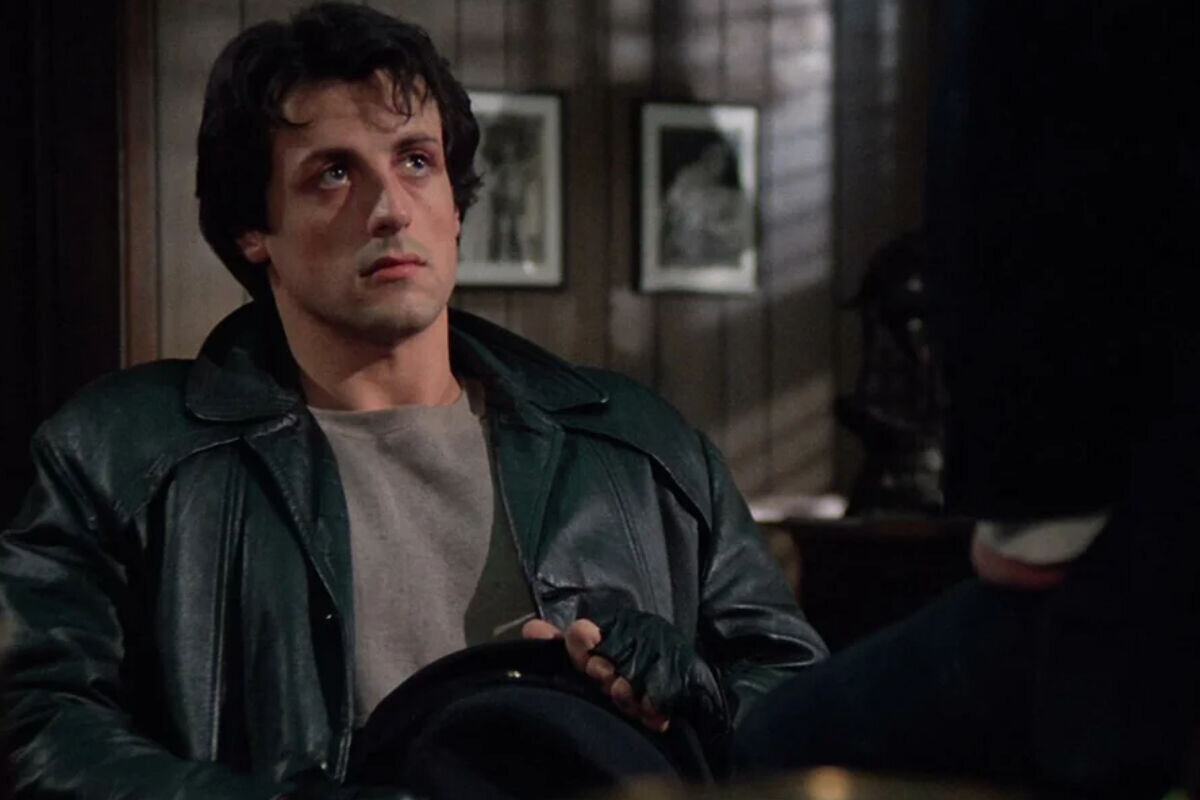4 года назад · 15255 просмотров
За гениальной работой актеров, режиссеров, и фееричными спецэффектами киноленты стоит самый важный пункт — сценарий. Успех фильма зарождается тогда, когда в голову сценариста приходит идея. Некоторые из них просят за свою работу огромные деньги, и при продаже на аукционах сценарии уходят студиям за миллионы долларов. Встречайте 10-ку самых дорогих сценариев, когда-либо проданных на аукционах.
1. Парк юрского периода
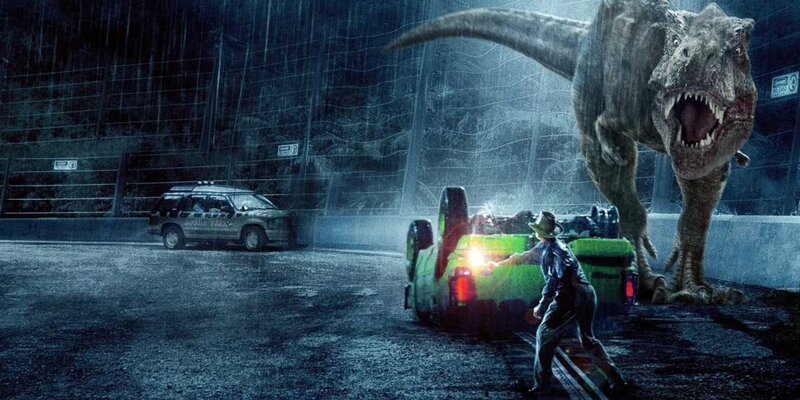
Источник:
Писатель-фантаст и сценарист Майкл Крайтон оценил свой сценарий к классическому «Парку юрского периода» 1993 года в 1,5 миллиона долларов (94 млн рублей). Крайтон определенно знал, какого успеха добьется его история. Не зря он дополнительно получил часть средств от проката — только в США сборы ленты составили 400 миллионов долларов.
2. История рыцаря

Источник:
За сценарий «Истории рыцаря» 2001 года его автор Брайан Хелгеленд получил 2,5 миллиона долларов (156 млн рублей). Сборы фильма в США составили 56 миллионов долларов, что на 10 млн меньше его бюджета.
3. Без ума от любви

Источник:
Стоимость сценария романтической драмы «Без ума от любви» (2005) от Роналда Бэсса — 2,75 млн долларов (172 млн рублей). Но это тот самый случай, когда вложенные средства не оправдали больших ожиданий. С бюджетом в 12 млн долларов картина собрала в прокате всего 36 тысяч долларов.
4. Знахарь
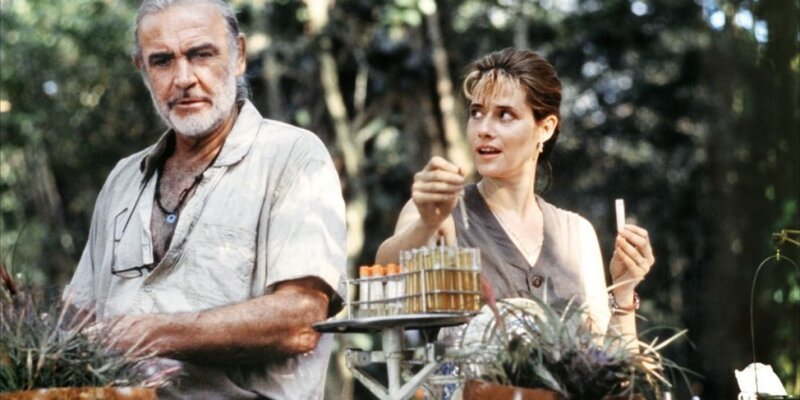
Источник:
Том Шульман продал сценарий картины «Знахарь» 1992 года за 3 миллиона долларов (188 млн рублей). Однако, фильм не набрал ожидаемой популярности. С бюджетом в 40 млн долларов он собрал в прокате 45 миллионов.
5. Основной инстинкт
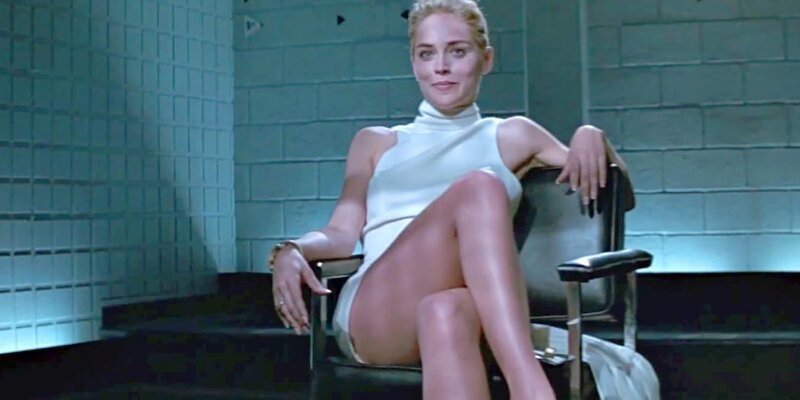
Источник:
Легендарный «Основной инстинкт» (1992) в свое время побил рекорды проката, собрав 118 млн долларов в США. Первоначальный бюджет ленты составил 49 миллионов. Автор хитового сценария Джо Эстерхаз получил за работу 3 млн долларов (188 млн рублей).
6. Евротур
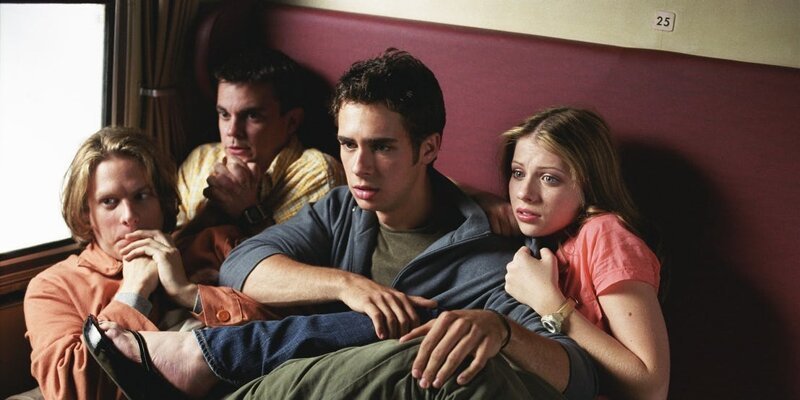
Источник:
С бюджетом в 25 млн долларов «Евротур» 2004 года собрал в американском прокате слабенькие 17 миллионов. При этом автору сценария Алеку Бергу заплатили 4 миллиона долларов (251 млн рублей).
7. Долгий поцелуй на ночь
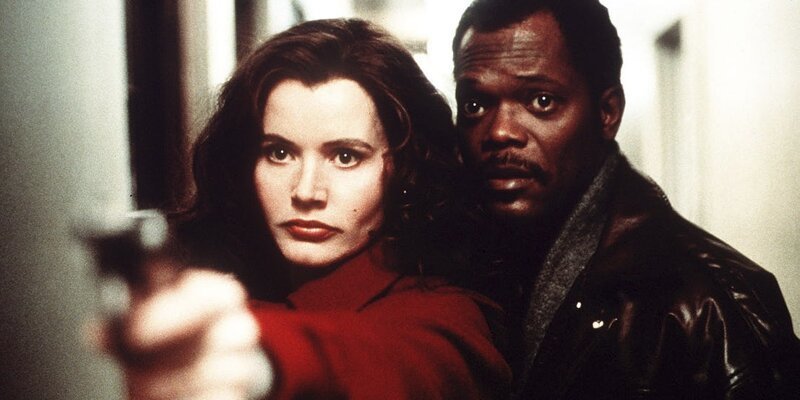
Источник:
За сценарий картины «Долгий поцелуй на ночь» 1996 года сценарист Шейн Блэк попросил 4 миллиона долларов (251 млн рублей). В прокате США фильм собрал 33 миллиона, но изначально в него вложили 65 миллионов долларов.
8. Рики Бобби: Король дороги
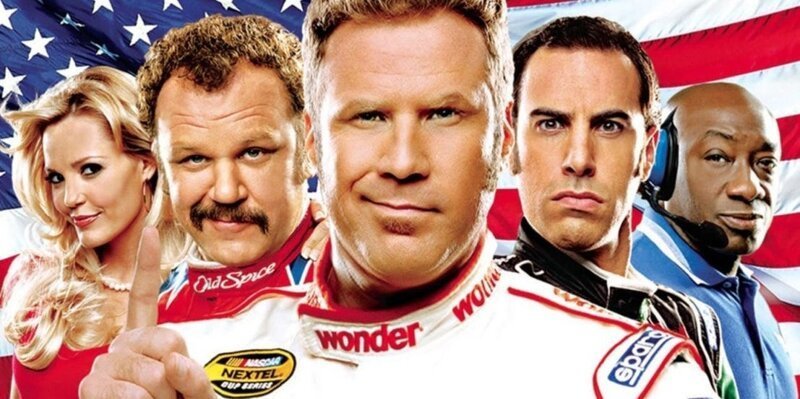
Источник:
Сценарий к комедии «Рики Бобби: Король дороги» 2006-го написал сценарист Уилл Феррелл, который получил за историю 4 миллиона долларов (251 млн рублей). С бюджетом 72 млн, картина имела успех: она собрала в американском прокате больше 148 миллионов долларов.
9. Комната страха
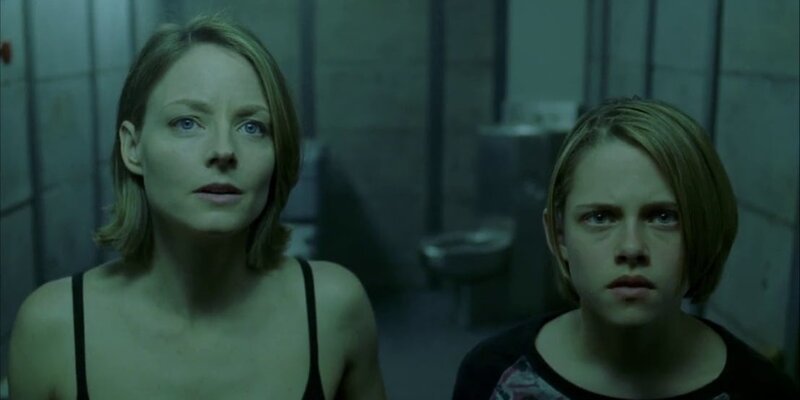
Источник:
Сценарист Дэвид Кепп оценил свой сценарий к фильму «Комната страха» 2002 года в 4 миллиона долларов (251 млн рублей). Триллер с участием Джоди Фостер и молодой Кристен Стюарт и бюджетом 48 миллионов собрал в прокате США 96 миллионов долларов.
10. Дежавю
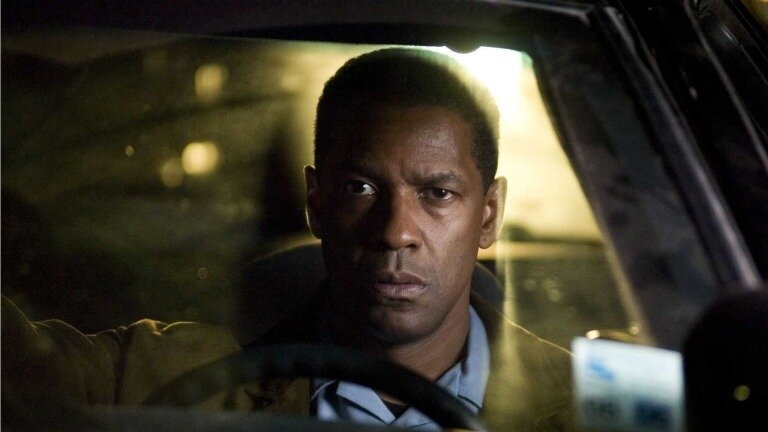
Источник:
У фильма «Дежавю» 2006 года с Дензелом Вашингтоном рекордная для нашего списка стоимость сценария — авторы Билл Марсили и Терри Россио получили за него 5 миллионов долларов (314 млн рублей). Изначально бюджет фильма составил 75 млн долларов. В американском прокате боевик собрал 64 миллиона.
Источник:
— переведено специально для fishki.net
Hollywood works like a fortified compound. A cabal of writers, producers, directors and actors have all the power, and like to keep things “in the family” so to speak. They don’t like to invite newcomers or outsiders to their decadent parties, which makes it all the more amazing when some newby scales the wall and ends up a megastar.
Writers have a particularly hard time breaking into the business, as the rest of the industry generally looks down on their craft and considers them as interchangeable as lightbulbs. Forget that the writer helps conceive an idea and provides the guide for an actor and a director to make a good film. In the mind of Hollywood, a writer is responsible for everything wrong with a movie, and gets no credit for anything good.
For those reasons, when a writer actually does break into the biz, it’s a rare event indeed. Even more miraculous, some writers manage to sell spec scripts (that is, original scripts they wrote without any pay or encouragement) for huge amounts of money, the sale becomes front page news. The scripts and writers listed here (in no particular order) got a taste of that glory. Some managed to parlay the moment into a thriving and lucrative career, while others drifted into obscurity as a flavor of the moment.
15. Jurassic Park
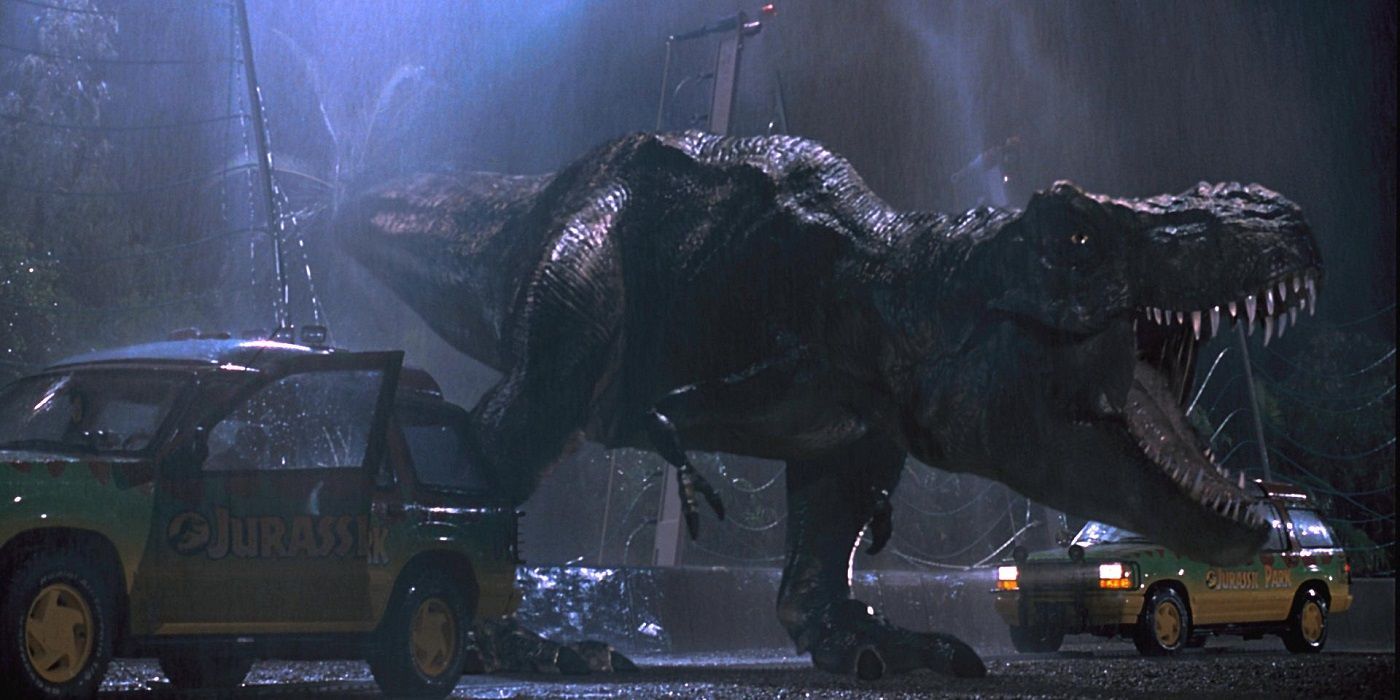
Author Michael Crichton was no stranger to Hollywood when he announced work on a story about geneticists cloning dinosaurs for a theme park. The author had already produced a string of bestselling novels, several of which had already become acclaimed films: Westworld continues to have a cult following (enough so that it is getting a remake on HBO) and the movie of The Andromeda Strain from director Robert Wise opened to strong box office and great reviews. Dinosaurs though, made tinseltown salivate.
Jurassic Park ignited a bidding war before the novel had even made it to publication. Several major studios vied for the rights, each with a director already in mind. Columbia favored Richard Donner, the action-comedy maestro behind Superman and Lethal Weapon. Warner Bros., sensing a comic book epic, tried to buy the rights for Tim Burton. Fox saw the property as a Gremlins-style creature feature, and tapped Joe Dante, while Universal had in mind a friend of Crichton’s: Steven Spielberg.
Author Crichton made an unheard of demand of $1.5 million plus gross points to sell the project, and Universal eventually won out. The result became one of the biggest movies in history, and a franchise that continues to thrive to this very day.
14. Basic Instinct
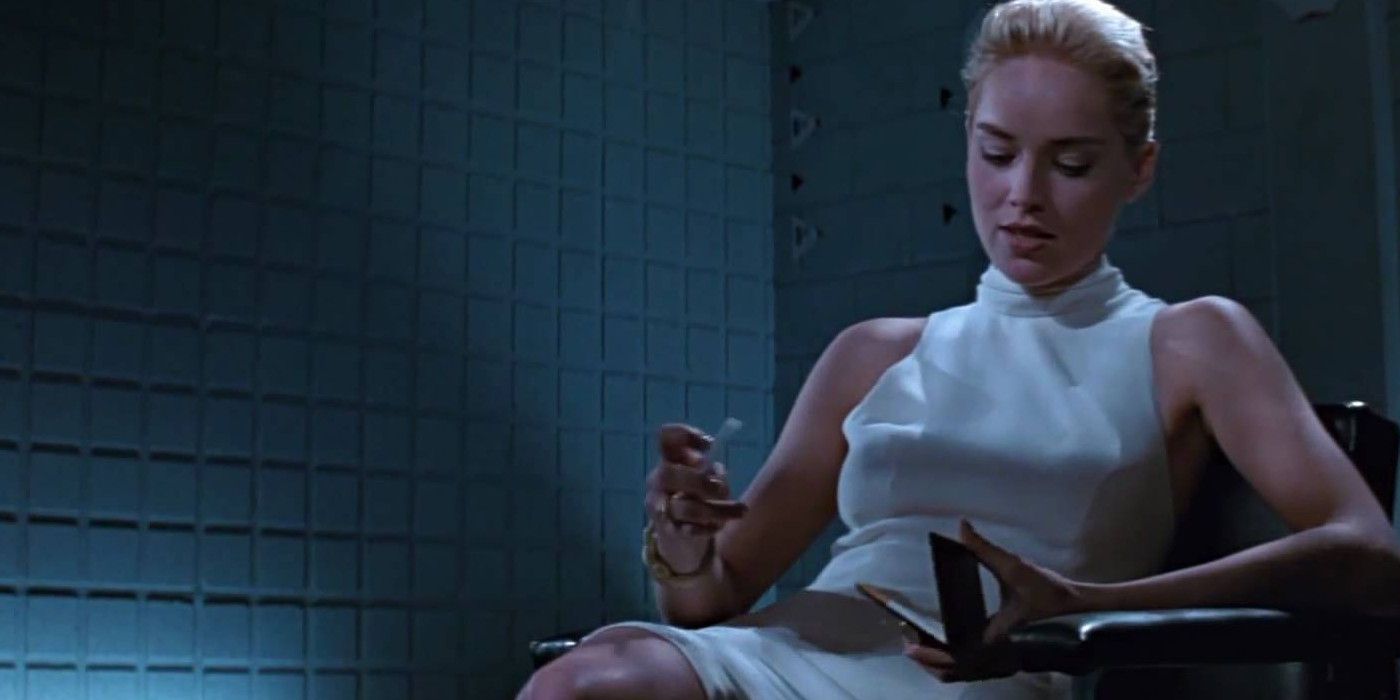
For better or worse, writer Joe Eszterhas became the screenwriter of the 90s for his potboiling, sexually-charged scripts for thrillers like Jagged Edge and the musical Flashdance. The writer also became known for his “bad boy” behavior. As a hard drinker and philanderer, he loved to spout incendiary comments in interviews while chain smoking the entire time.
Ezsterhas had ruffled feathers in 1989 when he slammed Creative Arts Agency head Mike Ovitz as a thug in an open letter to the trades. In the meantime, he’d had an idea for an erotic thriller. The writer started drinking, smoking and listening to the Rolling Stones as he banged out a draft in ten days. Esterhas called it Basic Instinct.
The script to Basic Instinct began to rapidly circulate around Hollywood, and when Esterhas made the brazen and unprecedented move of selling it via auction, the studio bosses came to bid. Producer Mario Kassar won out, paying a whopping $3 million for the script—a record breaking sum. Eventually, directed by Paul Verhoven and starring Michael Douglas and Sharon Stone, the film divided critics but became a runaway success at the box office. Esterhas would later repeat the feat, nabbing $3 million for another script of his, Showgirls. Perhaps it goes without saying that the latter didn’t quite fare as well.
13. The Last Boy Scout
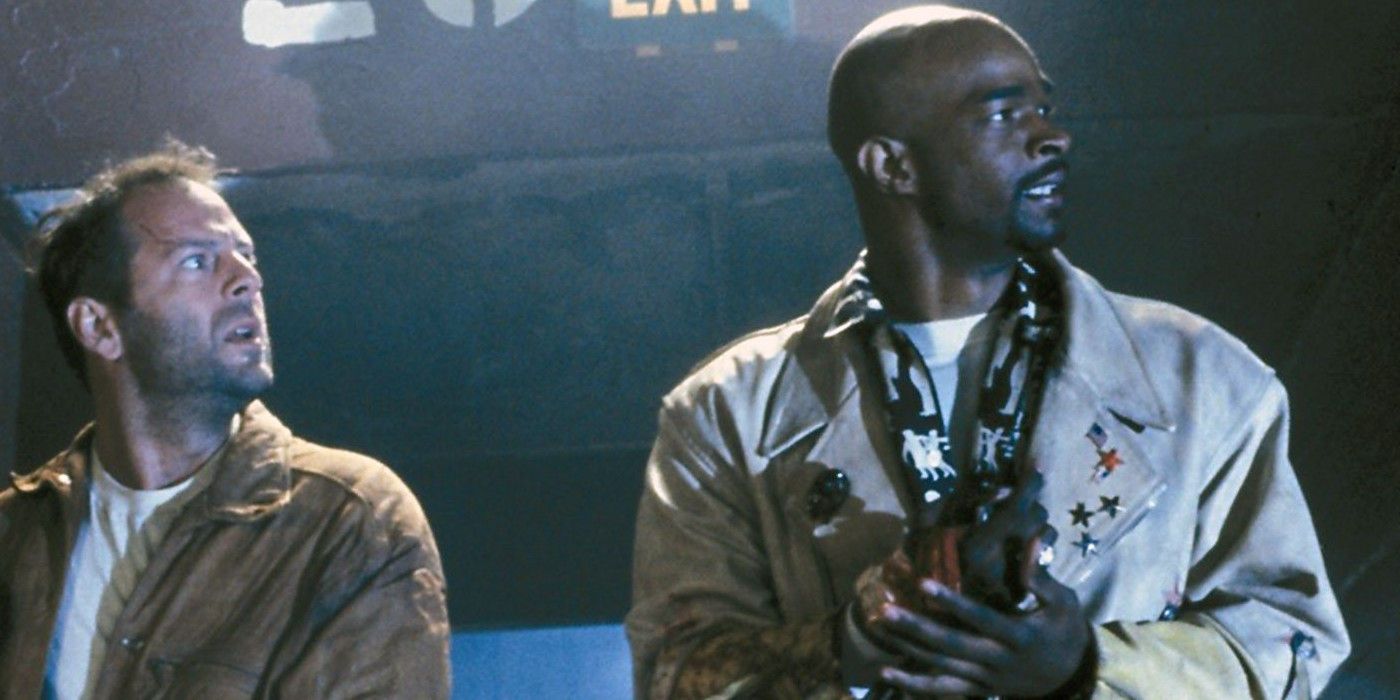
Shane Black already had a successful screenwriting career by 1991. The writer had started as a typist when a friend, screenwriter Fred Dekker, enlisted Black’s help on a script. The result landed him a series of jobs as a ghost writer for the Hollywood studios. In 1987, he had a string of hits with The Monster Squad, Predator and Lethal Weapon. The latter became a box office giant, and spawned a mult-million dollar franchise.
Studio Warner Bros. immediately commissioned Black to write a script for what would become Lethal Weapon 2. Black toiled to finish the story, and the eventual screenplay met with praise for the writing and derision by the studio as too dark. Taking some time off, Black then decided to write a spec script, a dark action-thriller called The Last Boy Scout.
The Last Boy Scout earned raves from Hollywood readers and a bidding war began between the studios. Carolco Pictures, the production company behind Terminator 2: Judgment Day offered Black a reported $2.25 million for the rights. In a stunning turn, Black turned down the offer! Instead, he accepted a $1.75 million offer from Warner Bros., along with assurance that the film would be produced by the same producer of Lethal Weapon, Joel Silver. If Black’s record-setting paycheck made headlines, so did the movie: the production became one of the most notoriously difficult ever, and the film flopped at the box office.
12. Butch Cassidy & the Sundance Kid
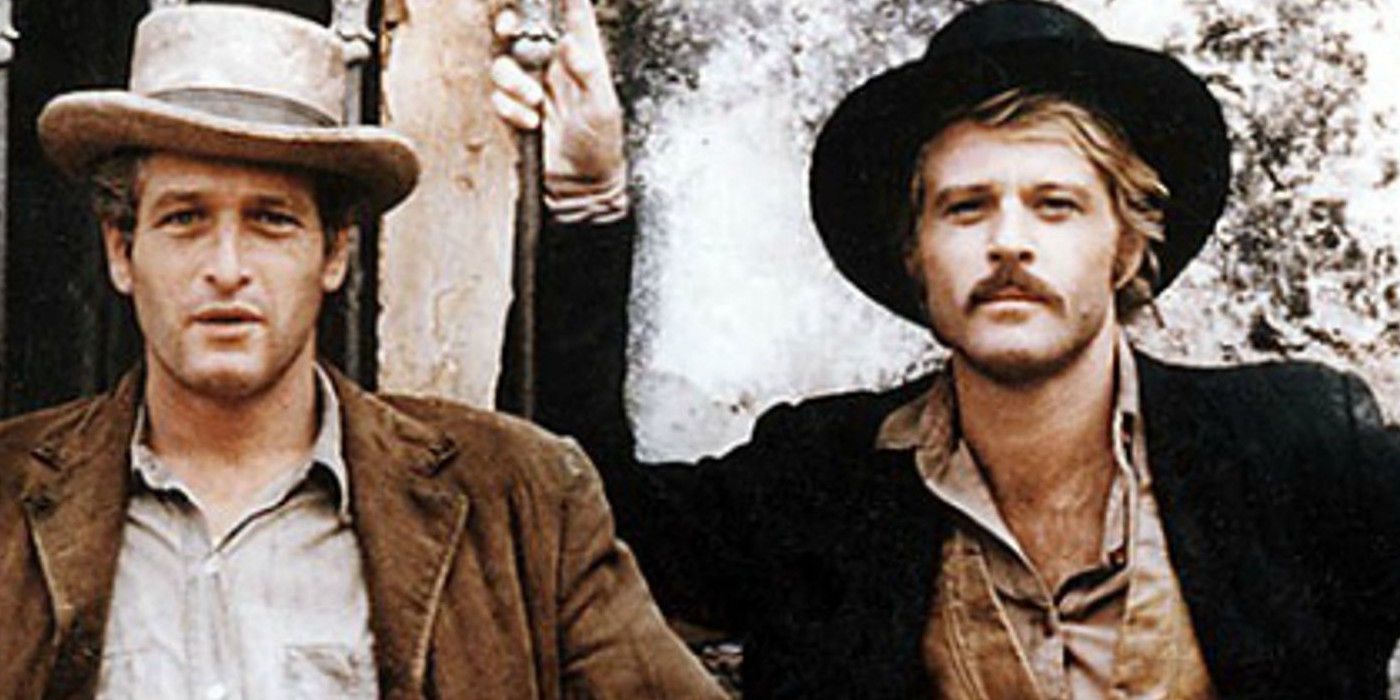
William Goldman began his writing career in academia. He studied poetry and literature at Colombia University before getting his Masters degree. When he set out to start a career, he began by writing novels. His first, The Temple of Gold, became a bestseller, and helped him transition to drama as well. After writing several other successful novels and stage plays, he began work on Marathon Man. The novel, a thriller about Nazi war criminals living in South America, became a runaway hit, prompting Goldman to adapt the novel to a screenplay. The subsequent film also became a huge success, granting ailing actor Laurence Olivier a comeback and scoring an Oscar nomination.
Goldman continued with steady Hollywood work when he decided to develop something more personal. Having run across the story of western outlaw Butch Cassidy in the 1950s, Goldman began to write a fictionalized and romanticized account of Cassidy’s life with his friend the Sundance Kid. After considering writing the story as a novel, Goldman decided to write it as a spec script. Though it first circulated to Hollywood indifference, a quick rewrite garnered wild interest. One of the first major bidding wars between studios took place over Butch Cassidy and the Sundance Kid, with Fox eventually triumphing and scoring the rights. Goldman received an unheard of $400,000 for the rights, and the resulting film won the writer his first Academy Award.
11. Radio Flyer
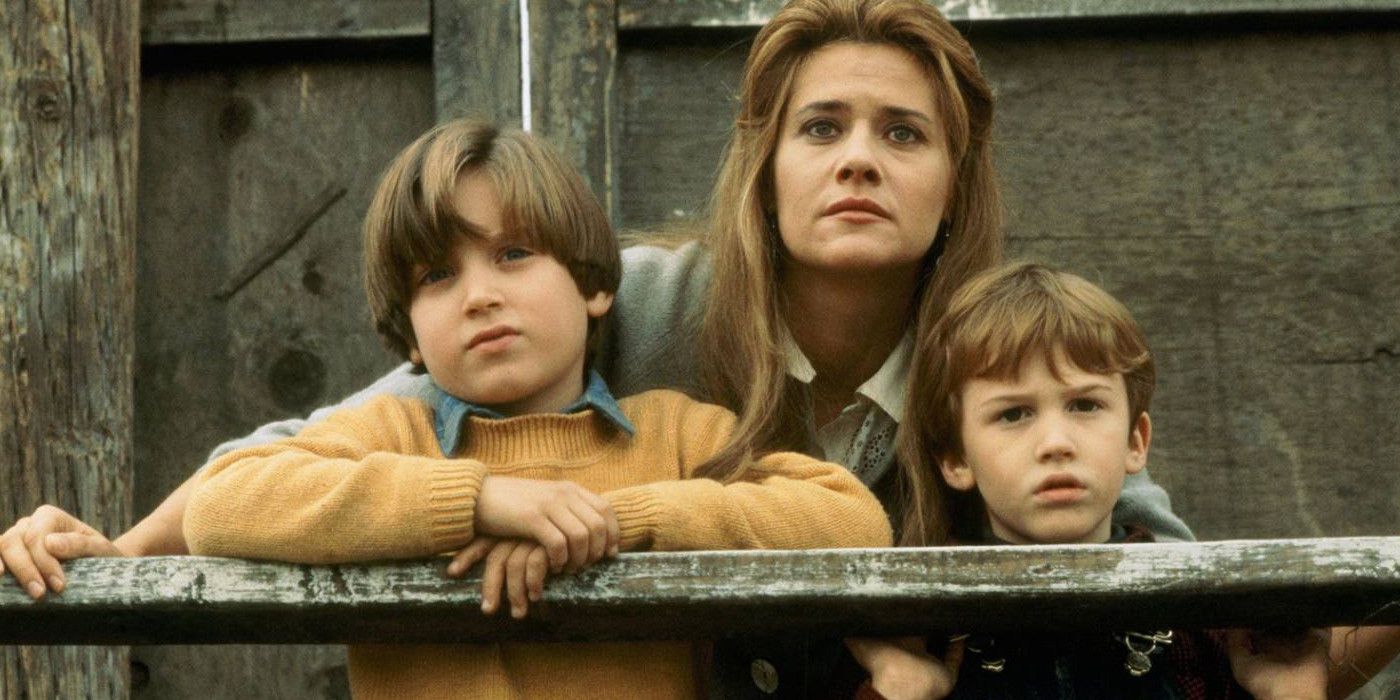
David Evans had enjoyed minor Hollywood success by the late 1980s. Two scripts he’d penned, Terminal Entry and Open House had cleared the hurdles to production, and the writer decided to work on something more personal, and more family oriented.
Radio Flyer had begun as a personal endeavor for Evans while in film school. The script spun the tale of two young brothers who relocate to California after their parents’ divorce. The story focused on the perspective of the two children, and contained several fantasy sequences to add an air of magic to the proceedings. Evans counterbalanced the whimsy & imagination of childhood with the story of the boys’ abusive stepfather, and the brother’s plot to build a machine and escape.
Radio Flyer caused a firestorm in Hollywood, as insiders predicted the film could rank alongside ET: The Extra Terrestrial as a quintessential family drama. The bidding battle began, and Columbia eventually won out, paying Evans a shocking $1.25 million for the script and offering him the chance to direct as well, despite having no experience.
If the bidding war made Radio Flyer notorious, the production made it infamous. Evans filmed a week on the movie with Rosanna Arquette in the lead before producer Michael Douglas shut down the movie. Richard Donner, who had lobbied hard to direct the film, then came in and demanded rewrites of the script. A new production began with Donner at the helm, starring Lorraine Bracco, Elijah Wood and Joey Mazzello as the budget began to spiral. The resulting film bombed in theatres and met with attacks from critics who felt it trivialized child abuse. Evans went on to write The Sandlot to better reception, and the author recently published a novelized form of his original Radio Flyer script called The King of Pacoima.
10. Medicine Man
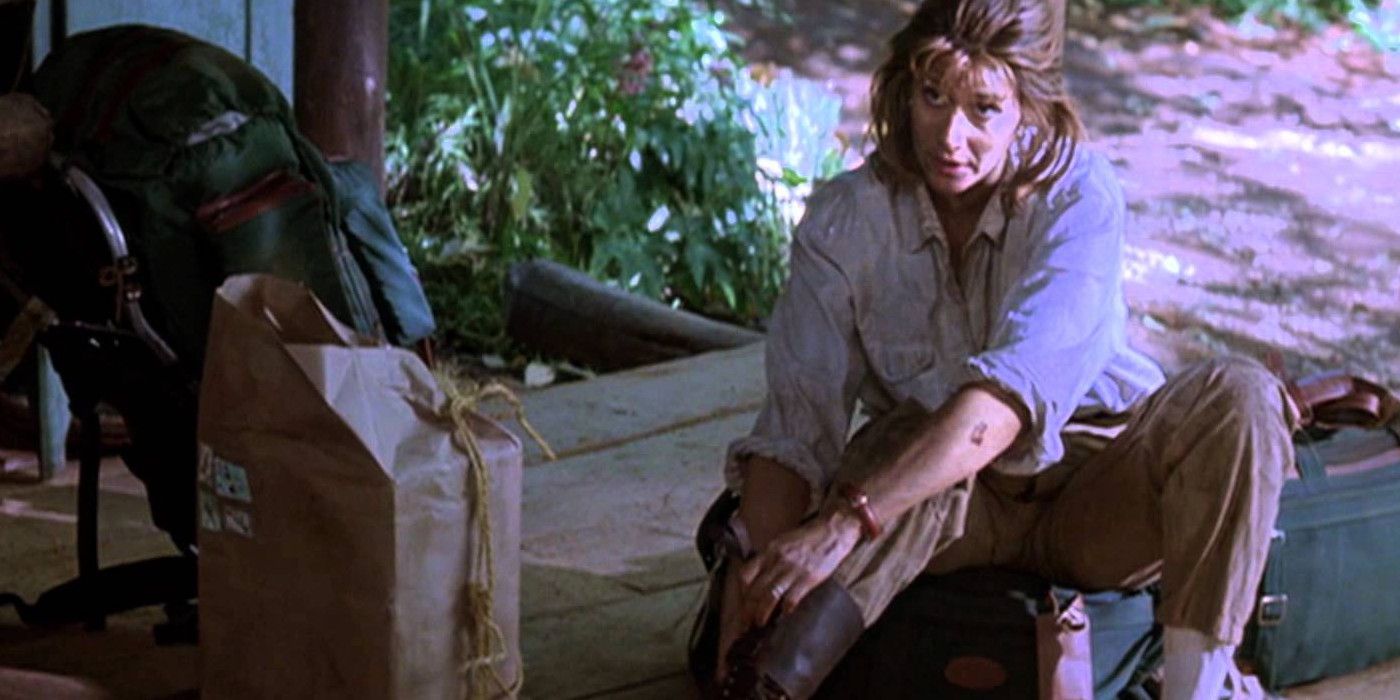
In the early 1990s, the environmental movement had hit a new stride in the popular consciousness, and movies & TV began to take notice. Ferngully became a hit family film, while movies like The Pelican Brief, 12 Monkeys and Once Upon a Forest all focused on environmental themes. Given the sudden popularity of the environmentalist genre, it was only a matter of time before a script would promise a prestige picture influenced by the movement.
Around the same time, screenwriter Tom Schulman hit a career high. After years toiling in telefilms, Schulman had a break out with Dead Poet’s Society, which netted him an Academy Award. After performing high-profile script doctor duties on Honey, I Shrunk the Kids, he scored another hit with the popular comedy What About Bob? When the writer announced he’d penned an environmentalist script, Hollywood rushed to buy it. Schulman ended up with a shocking $3 million paycheck as Disney rushed the movie into production.
Then a death blow hit the film: John McTiernan, known for his macho action-driven films, landed the director’s job. Though Disney lavished money on the production—including hiring stars Loraine Bracco and Sean Connery as the leads—the movie bombed in theatres, suffering from heavy competition from sleeper hit Wayne’s World.
9. A Knight’s Tale

Writer Brian Helgeland rode a wave of success into the early 2000s. He started in the low-budget horror circuit writing slasher titles like 976-EVIL and A Nightmare on Elm Street 4: The Dream Master. The latter proved a box office hit, and helped Helgeland land enough clout to score a job writing the detective noir film L.A. Confidential. The movie won rave reviews and also earned the writer an Academy Award.
Helgeland chose the time to transition into directing, beginning with Payback, which became a box office hit and netted respectable reviews. When Helgeland chose Chaucer’s The Canterbury Tales as the subject of his next writer/director outing, he raised more than a few eyebrows in Hollywood.
Eventually titled A Knight’s Tale, the script met with an enthusiastic reception around Hollywood. Given Helgeland’s recent successes and the positive buzz around the script, he managed to score $2.5 million for his writing fee. A Knight’s Tale opened in 2001 to positive reviews and decent box office, and featured Heath Ledger in an early starring role. It has since gained a greater cult following thanks to Ledger’s growing popularity, and its quirky, anachronistic (the peasants sing rock songs) take on knights, jousting and the Middle Ages.
8. Evan Almighty
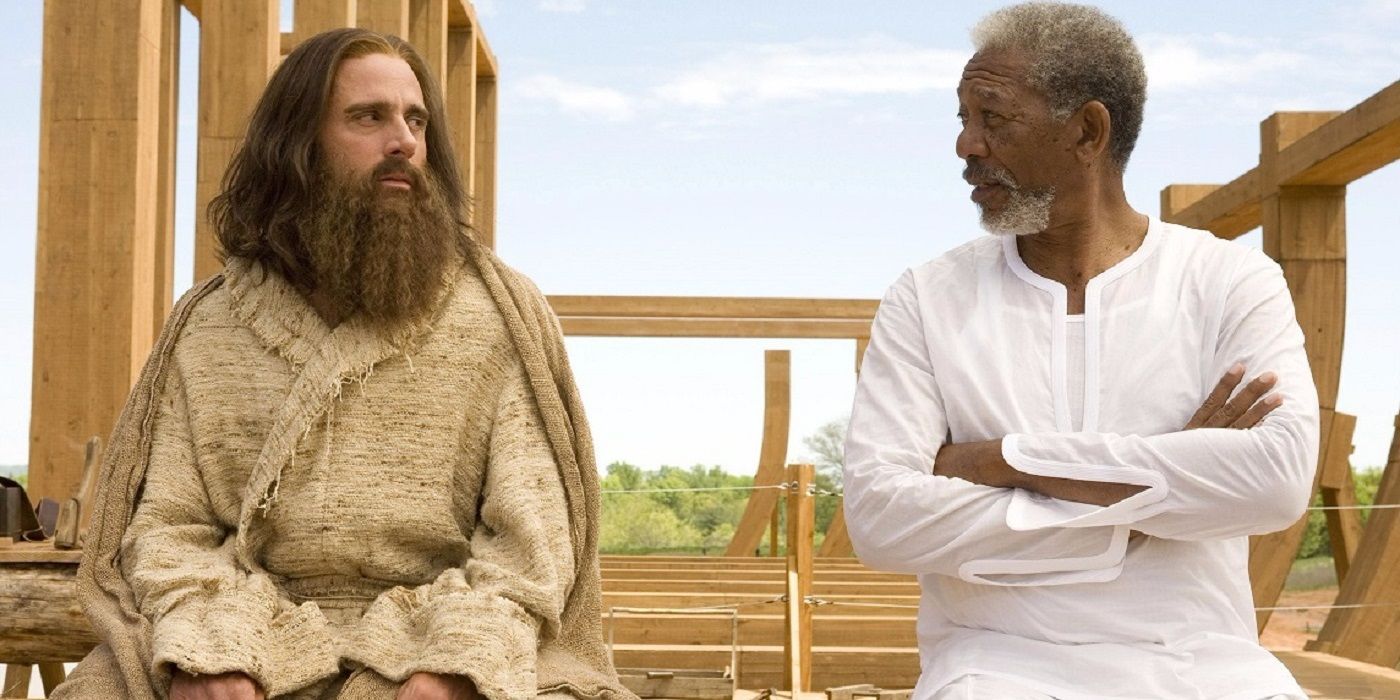
God was everywhere in the mid-2000s, at least in the movies anyway. Bruce Almighty had become a comedy hit courtesy of Jim Carrey’s penchant for physical comedy, and The Passion of the Christ rocked the world by becoming a runaway hit despite charges of anti-Semitism and the entire movie being spoken in Aramaic! When writers Bobby Florsheim and Josh Stolberg put their spec script The Passion of the Ark up for sale, Hollywood had a divine premonition.
The Passion of the Ark focused on an everyman who has a vision of God warning him that he must build a new ark to protect humanity and the animal kingdom from a coming flood. Little known writers Stolberg and Florsheim nabbed a $2.5 million payday for the spec script, with Universal and Sony opting to co-produce the film.
Then Hollywood devils struck. Nervous about the subject matter and commercial viability, Universal fired Stolberg and Florsheim and decided to retool the story as a sequel to Bruce Almighty. Carrey declined to return, so the script was rewritten again and Steve Carrell cast in the lead. Reports state that nothing of the original Passion of the Ark script survived to the final movie beyond the man-builds-arc concept, essentially meaning that Florsheim and Stolberg got paid for a movie that never got made!
7. Milk Money
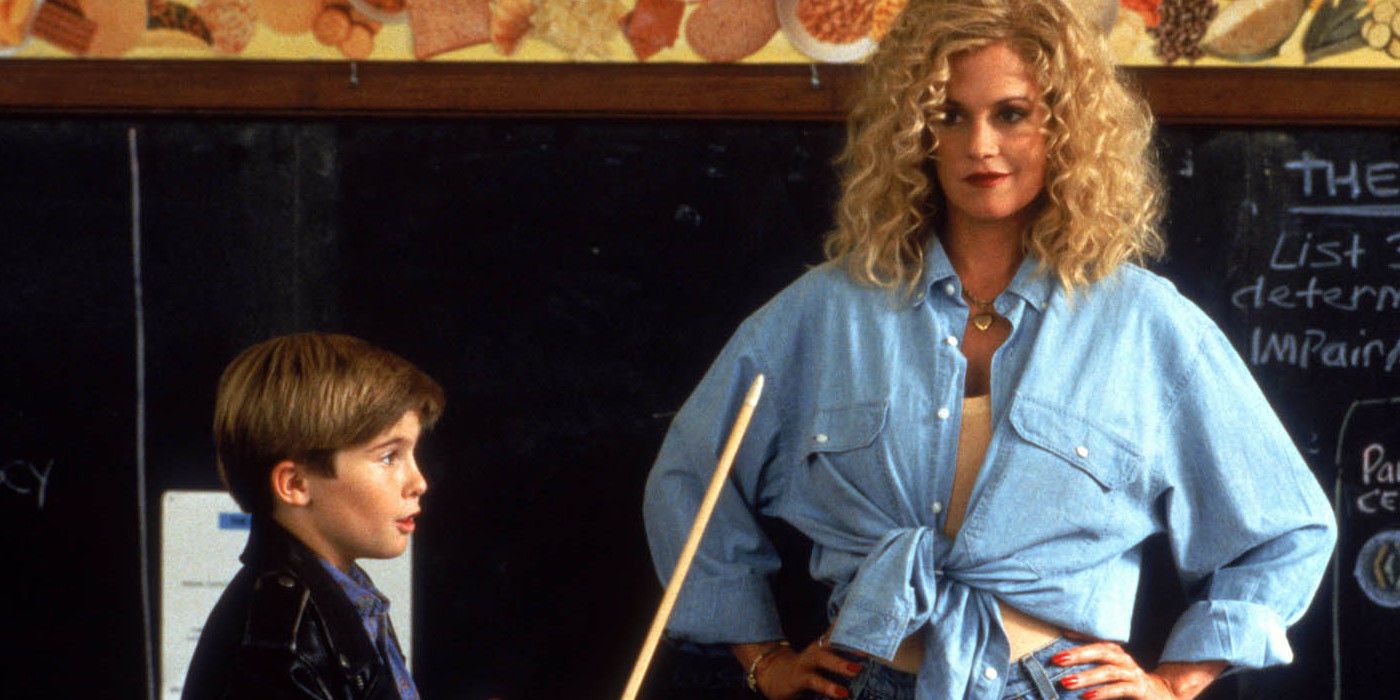
Sherry Lansing became the first woman to run a major studio when she took on CEO duties of Paramount in 1992. Lansing wasted no time in making even more headlines with two of her first decisions in her role. She first paid a whopping $2.5 million for the script to Jade by Joe Ezsterhas (cough, cough) which didn’t even exist! Ezsterhas had only submitted an outline to the studio! She also set records for buying a spec romantic comedy script, Milk Money from unknown writer John Mattson.
Milk Money followed the story of three horny, adolescent boys determined to see a woman naked. A comedy of errors puts the boys in the company of a hooker named V, who ends up stranded at the home of one of the boys and takes up residence in his tree house. The young boy, Frank, becomes enamored of V and decides to set her up with his single dad.
Milk Money had the advantage of mega producers Frank Marshall and Kathleen Kennedy taking on producing duties, and Paramount first approached Joe Dante as director. When Dante left over creative differences, Richard Benjamin took over and cast Ed Harris and Melanie Griffith in the leads. The final movie bombed at the box office, opening to scathing reviews and audience indifference.
6. Mozart & the Whale
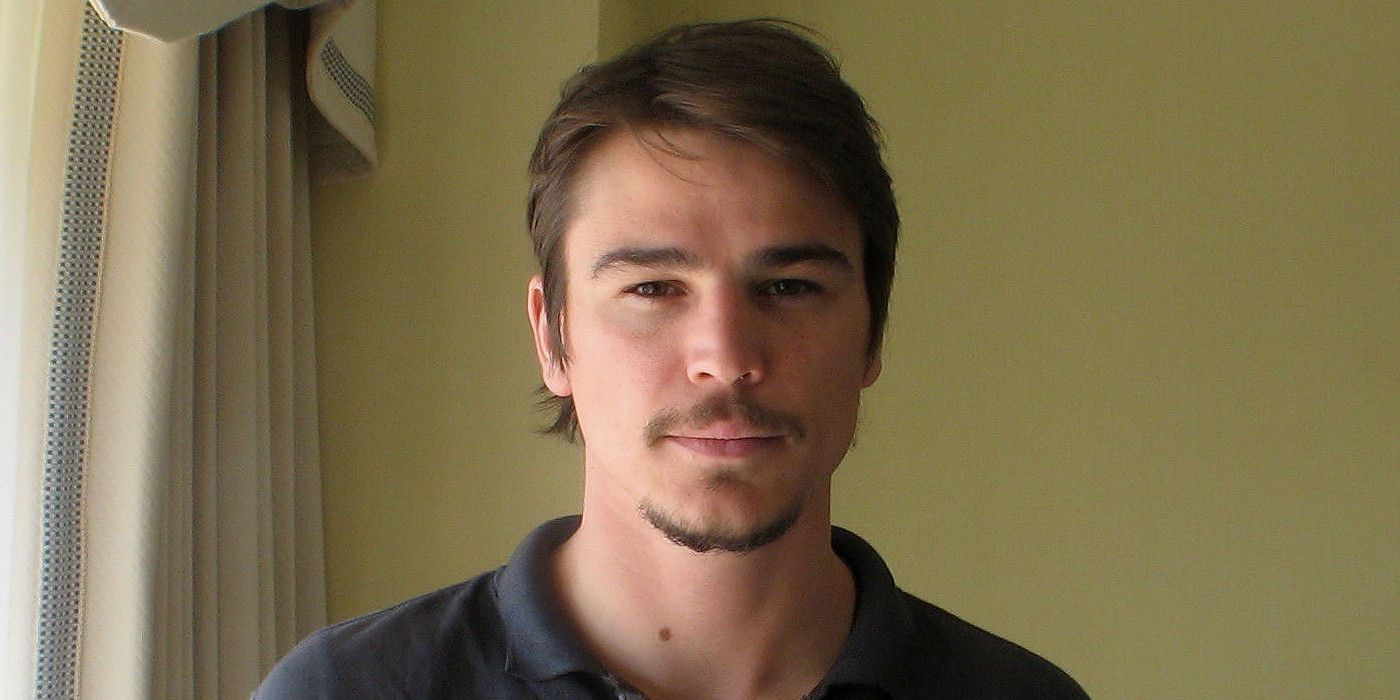
Ronald Bass scored a major hit with Rain Man in 1988. Not only did audiences flock to the film, Bass won an Academy Award for his screenplay, and the film even took home the Best Picture Oscar. After enjoying a wildly acclaimed run in the 90s, authoring hit films like Dangerous Minds, My Best Friend’s Wedding, The Joy Luck Club and How Stella Got Her Groove Back, he gravitated again to sensitive subjects after reading a newspaper article on autism.
Bass conceived and developed a script about a man with Asperger’s syndrome falling in love. Steven Spielberg showed immediate interest in the project, who wanted to direct the film with Robin Williams and Tea Leoni in the leads. Scheduling issues forced Spielberg to bow out, though not before Bass earned $2.75 million for his script. With the project falling apart, fledgling production company NuImage picked it up and cast then-hot up and comers Josh Hartnett and Radha Mitchell in the leads. The resulting product, directed by Norwegian director Petter Naess, had a hard time finding a distributor thanks to the subject matter…and the quality of the film. It received little attention in the US as Hartnett’s star had already begun to wane, and making a romantic comedy about autism made for some awkward tonal issues. In the end, the movie earned only $36,000, far less than Bass’s payday.
5. The Boondock Saints
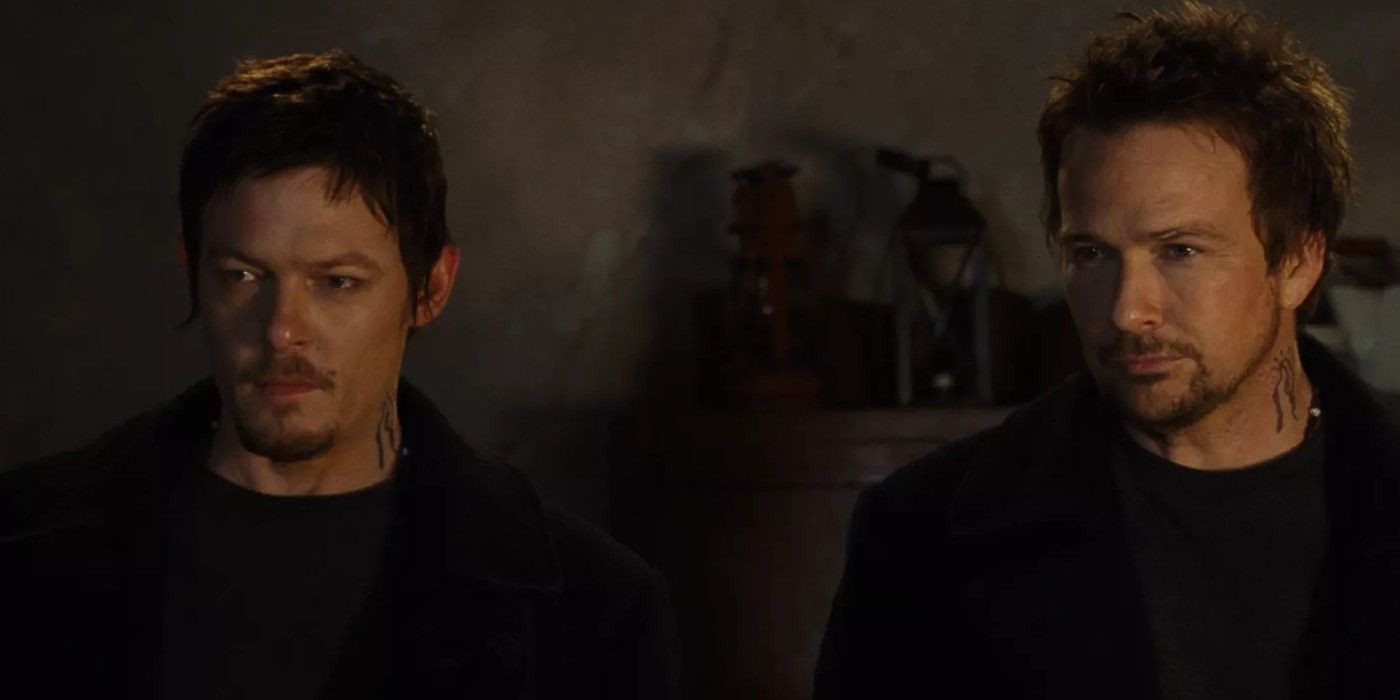
Now here’s a weird one. The Boondock Saints made headlines in the mid 90s when Miramax and the American independent film movement had begun to radically shift the dynamics of Hollywood. Bartender Troy Duffy wrote the script in his spare time with no prior experience, and yet still managed to get the script circulating around Hollywood thanks to a friend in the studio system. Producers liked the strange take on the crime thriller genre, and began approaching Duffy about the rights. The writer nearly accepted a deal with Paramount before Miramax chief Harvey Weinstein made Duffy an unorthodox offer: Miramax would option the script for $450,000 and let Duffy direct, let his band write the soundtrack and even throw in co-ownership of the bar he tended in!
Needless to say, when Duffy accepted the Miramax deal, it made front page headlines on the trades in Hollywood. Then the trouble started. Duffy’s ego and abusive behavior caused production issues, as did his disputes with the studio over casting. Just before production was slated to begin, Miramax pulled the plug, and landed Duffy in debt when the studio demanded reimbursement of preproduction fees. Franchise Pictures then picked up the project at a lower budget. The final film bombed in a limited theatrical release, though it later found a cult following on DVD. Duffy was not able to find work again in Hollywood until production of a sequel, Boondock Saints II: All Saints Day.
4. Panic Room
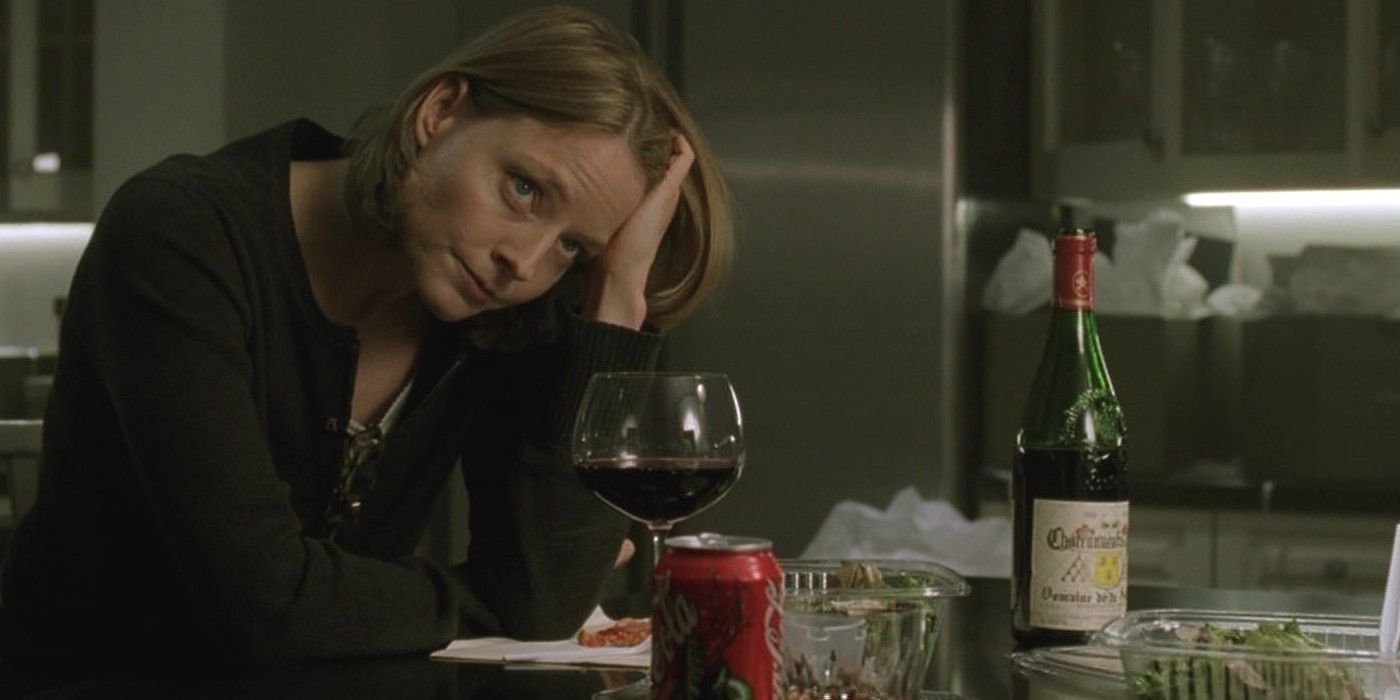
David Koepp has one of the best screenwriting careers in Hollywood. After working on a series of minor films, his spec script Death Becomes Her landed in the hands of Robert Zemekis and helped propel his name to the top of the showbiz heap. He followed up by working on Jurassic Park and its first sequel, The Lost World, as well as Mission: Impossible, Carlito’s Way and Stir of Echoes. His solid box office track record and experience working with top directors helped him earn healthy paydays too.
Still, his paycheck for his spec script Panic Room made the industry gasp. Koepp, no stranger to the wealthy and famous, became intrigued by the number of panic rooms—that is, fortified mini-bunkers used for hiding in case of robbery—that affluent Americans had installed in their homes. The script found an immediate home at Columbia Pictures and caught the attention of director David Fincher. With the project green lit, Koepp took home a staggering $4 million for the script.
The final film, which starred Jodie Foster, Forrest Whittaker and Kristen Stewart, opened to strong reviews and box office. The success of the movie added another jewel to the crowns of box office queen Foster, director Fincher, and Koepp himself. Koepp would follow up Panic Room by penning the script to Sam Raimi’s Spider-Man.
3. Aliens in the Attic
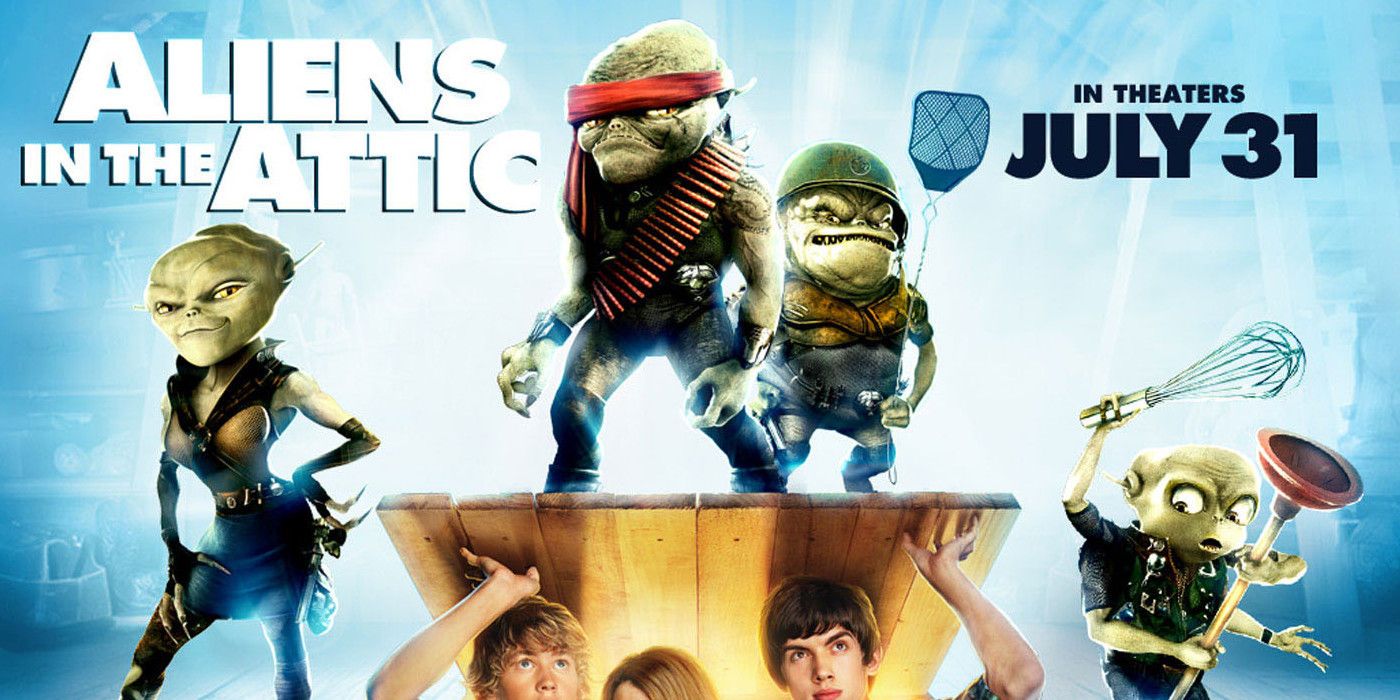
Mark Burton first came to the attention of Hollywood with his work on British television, and later, with the surprise success of the animated film Chicken Run. His quirky style of writing and unusual humor helped him land further jobs, including screenwriting duties on Madagascar and Gnomeo and Juliet. With a strong track record for kiddie fare, he decided to try his hand at live action comedy with his script They Came From Upstairs.
Fox snatched up the script for a shocking $2.25 million, which made for some good news for Burton…and some godawful news too. Fox, fearing the script might be too British, hired Adam Sandler depute Adam Goldberg to rewrite the screenplay, retitling the project Aliens in the Attic. Goldberg had toiled in television on projects like Muppet Wizard of Oz before transitioning to film with the cult movie Fanboys.
The final version of Aliens in the Attic, as directed by John Schultz, opened in 2009 to negative reviews and mediocre box office. The reception hurt the career of Burton, who returned to British TV, though not that of Goldberg. Since Aliens in the Attic, Goldberg has gone on to work on How to Train Your Dragon and the sitcom The Goldbergs.
2. The Game
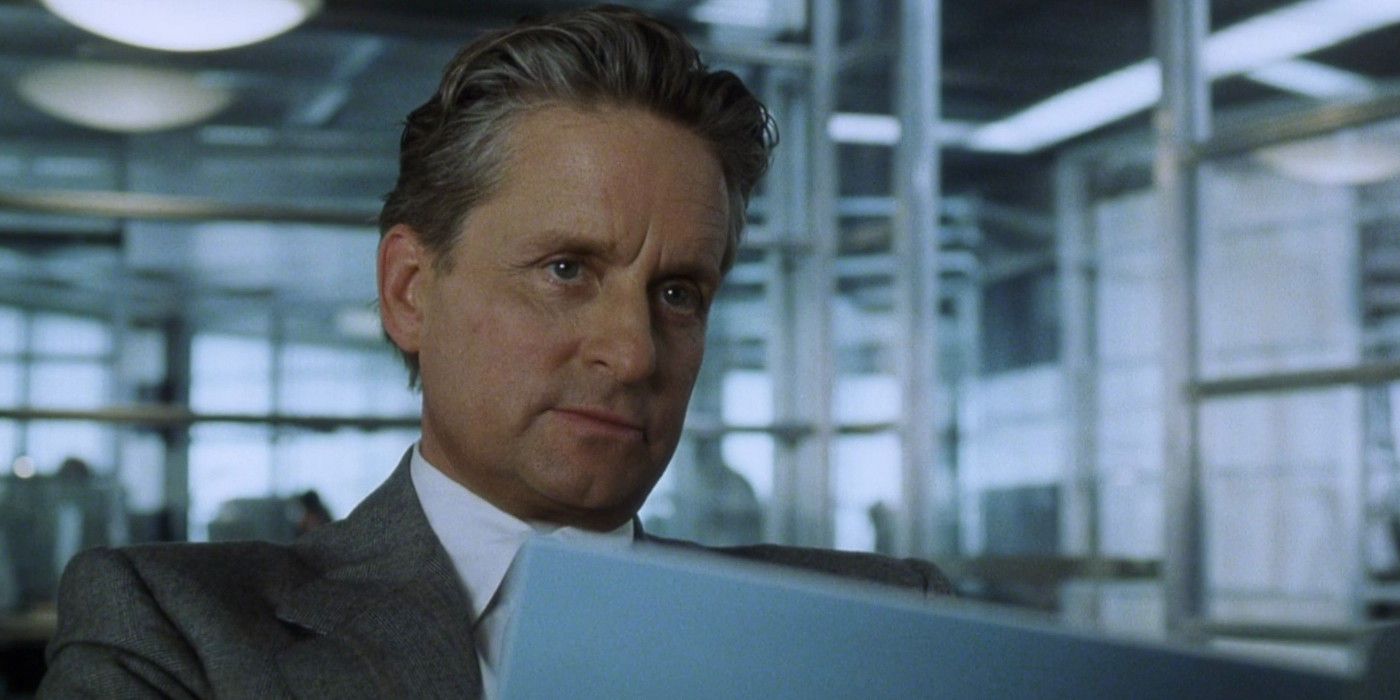
Screenwriters John Brancato and Michael Ferris toiled for years in B-movies, struggling to gain a foothold. Their work on The Unborn, Into the Sun and Mindwarp did little to further their careers. Then came the Sandra Bullock vehicle The Net, which did score them some positive notice. Sensing a knack for thrillers, they decided to pen a spec script about a man playing an alternate reality game, aptly titled The Game.
Hollywood swooned over the screenplay to The Game, and Brancato and Ferris scored a massive $2 million, and went into development at MGM. It sat on the shelf there for years before getting revived as a low-budget thriller by Propaganda Films. When the project stalled again, MGM reacquired the project for David Fincher who immediately fired Brancato and Ferris and began a rewrite on the script. Andrew Kevin Walker then came in to enhance the screenplay, and the project stalled yet again.
The Game finally hit screens in 1997, directed by Fincher and starring Michael Douglas & Sean Penn. It did strong business at the box office though the critical response lacked enthusiasm. A number of critics commented on the number of plot holes in the script, which neither the $2 million payday for Brancato and Ferris, nor the various rewrites had been able to plug.
1. The Long Kiss Goodnight
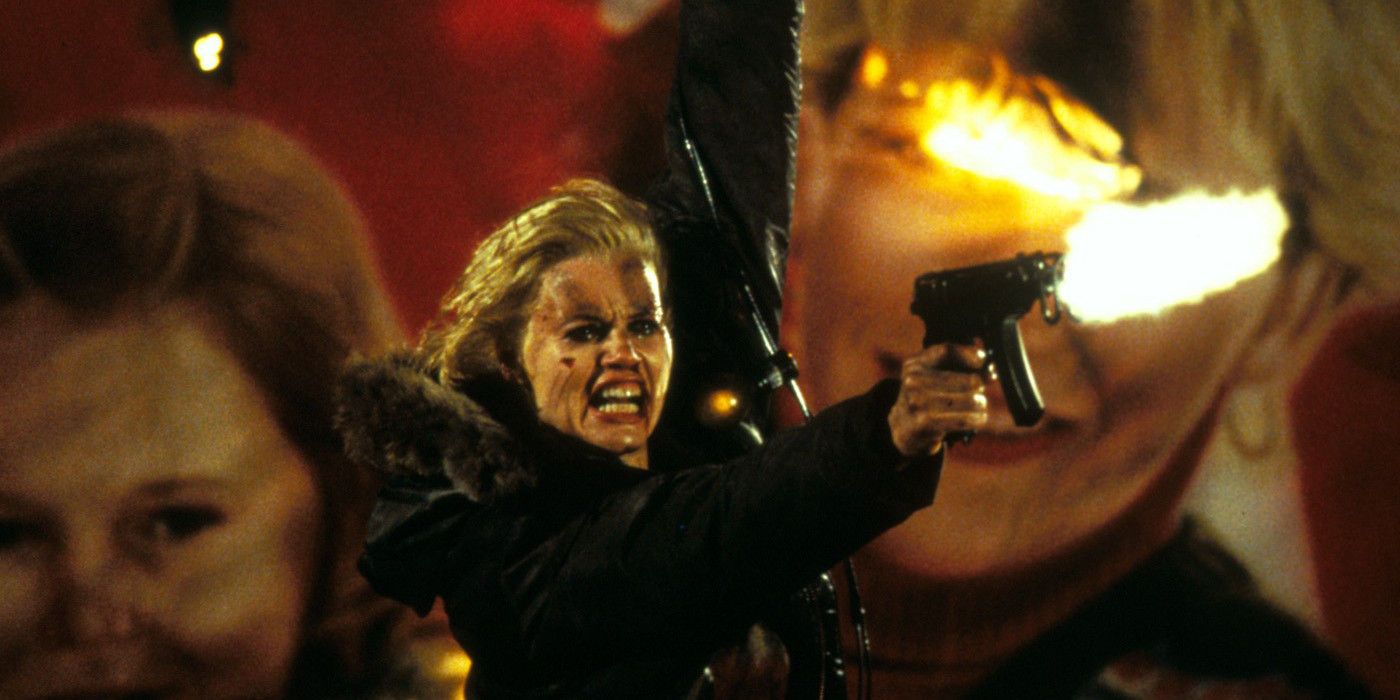
Shane Black struck again in the mid-90s, and with another thriller. His spec script The Long Kiss Goodnight told the story of an amnesiac schoolteacher who begins to recover her lost memories, realizing she’s actually an assassin. Of course, she then comes out of her forced retirement to reclaim her memories & true identity, and chaos ensues.
Fledgling studio New Line Pictures picked up the screenplay and put it into development. Around the same time, it landed in the lap of Oscar winning actress Geena Davis, who’d been trying to transition out of dramatic roles and into more action-oriented fare. She found the role of the female assassin attractive, and the film also would afford her the opportunity to work with her then-husband, action director Renny Harlin.
Then began the deconstruction: rewrites. Harlin and New Line found the script too dark and violent, and a number of unnamed script doctors altered it from its original form. Black resented the meddling, but kept his mouth shut, at least until after the release of the movie. During production, the budget spiraled and the film, along with Cutthroat Island, helped Davis & Harlin earn a reputation for being profligate spenders.
The Long Kiss Goodnight opened to mixed reviews and middling box office, though it still maintains a strong cult following. Harlin considers it his best film, and rumors of a sequel continue to rumble around the internet, though as of yet, it has not materialized.
—
Can you think of any other crazy behind-the-scenes Hollywood stories? Let us know in the comments!
Hollywood works like a fortified compound. A cabal of writers, producers, directors and actors have all the power, and like to keep things “in the family” so to speak. They don’t like to invite newcomers or outsiders to their decadent parties, which makes it all the more amazing when some newby scales the wall and ends up a megastar.
Writers have a particularly hard time breaking into the business, as the rest of the industry generally looks down on their craft and considers them as interchangeable as lightbulbs. Forget that the writer helps conceive an idea and provides the guide for an actor and a director to make a good film. In the mind of Hollywood, a writer is responsible for everything wrong with a movie, and gets no credit for anything good.
For those reasons, when a writer actually does break into the biz, it’s a rare event indeed. Even more miraculous, some writers manage to sell spec scripts (that is, original scripts they wrote without any pay or encouragement) for huge amounts of money, the sale becomes front page news. The scripts and writers listed here (in no particular order) got a taste of that glory. Some managed to parlay the moment into a thriving and lucrative career, while others drifted into obscurity as a flavor of the moment.
15. Jurassic Park

Author Michael Crichton was no stranger to Hollywood when he announced work on a story about geneticists cloning dinosaurs for a theme park. The author had already produced a string of bestselling novels, several of which had already become acclaimed films: Westworld continues to have a cult following (enough so that it is getting a remake on HBO) and the movie of The Andromeda Strain from director Robert Wise opened to strong box office and great reviews. Dinosaurs though, made tinseltown salivate.
Jurassic Park ignited a bidding war before the novel had even made it to publication. Several major studios vied for the rights, each with a director already in mind. Columbia favored Richard Donner, the action-comedy maestro behind Superman and Lethal Weapon. Warner Bros., sensing a comic book epic, tried to buy the rights for Tim Burton. Fox saw the property as a Gremlins-style creature feature, and tapped Joe Dante, while Universal had in mind a friend of Crichton’s: Steven Spielberg.
Author Crichton made an unheard of demand of $1.5 million plus gross points to sell the project, and Universal eventually won out. The result became one of the biggest movies in history, and a franchise that continues to thrive to this very day.
14. Basic Instinct

For better or worse, writer Joe Eszterhas became the screenwriter of the 90s for his potboiling, sexually-charged scripts for thrillers like Jagged Edge and the musical Flashdance. The writer also became known for his “bad boy” behavior. As a hard drinker and philanderer, he loved to spout incendiary comments in interviews while chain smoking the entire time.
Ezsterhas had ruffled feathers in 1989 when he slammed Creative Arts Agency head Mike Ovitz as a thug in an open letter to the trades. In the meantime, he’d had an idea for an erotic thriller. The writer started drinking, smoking and listening to the Rolling Stones as he banged out a draft in ten days. Esterhas called it Basic Instinct.
The script to Basic Instinct began to rapidly circulate around Hollywood, and when Esterhas made the brazen and unprecedented move of selling it via auction, the studio bosses came to bid. Producer Mario Kassar won out, paying a whopping $3 million for the script—a record breaking sum. Eventually, directed by Paul Verhoven and starring Michael Douglas and Sharon Stone, the film divided critics but became a runaway success at the box office. Esterhas would later repeat the feat, nabbing $3 million for another script of his, Showgirls. Perhaps it goes without saying that the latter didn’t quite fare as well.
13. The Last Boy Scout

Shane Black already had a successful screenwriting career by 1991. The writer had started as a typist when a friend, screenwriter Fred Dekker, enlisted Black’s help on a script. The result landed him a series of jobs as a ghost writer for the Hollywood studios. In 1987, he had a string of hits with The Monster Squad, Predator and Lethal Weapon. The latter became a box office giant, and spawned a mult-million dollar franchise.
Studio Warner Bros. immediately commissioned Black to write a script for what would become Lethal Weapon 2. Black toiled to finish the story, and the eventual screenplay met with praise for the writing and derision by the studio as too dark. Taking some time off, Black then decided to write a spec script, a dark action-thriller called The Last Boy Scout.
The Last Boy Scout earned raves from Hollywood readers and a bidding war began between the studios. Carolco Pictures, the production company behind Terminator 2: Judgment Day offered Black a reported $2.25 million for the rights. In a stunning turn, Black turned down the offer! Instead, he accepted a $1.75 million offer from Warner Bros., along with assurance that the film would be produced by the same producer of Lethal Weapon, Joel Silver. If Black’s record-setting paycheck made headlines, so did the movie: the production became one of the most notoriously difficult ever, and the film flopped at the box office.
12. Butch Cassidy & the Sundance Kid

William Goldman began his writing career in academia. He studied poetry and literature at Colombia University before getting his Masters degree. When he set out to start a career, he began by writing novels. His first, The Temple of Gold, became a bestseller, and helped him transition to drama as well. After writing several other successful novels and stage plays, he began work on Marathon Man. The novel, a thriller about Nazi war criminals living in South America, became a runaway hit, prompting Goldman to adapt the novel to a screenplay. The subsequent film also became a huge success, granting ailing actor Laurence Olivier a comeback and scoring an Oscar nomination.
Goldman continued with steady Hollywood work when he decided to develop something more personal. Having run across the story of western outlaw Butch Cassidy in the 1950s, Goldman began to write a fictionalized and romanticized account of Cassidy’s life with his friend the Sundance Kid. After considering writing the story as a novel, Goldman decided to write it as a spec script. Though it first circulated to Hollywood indifference, a quick rewrite garnered wild interest. One of the first major bidding wars between studios took place over Butch Cassidy and the Sundance Kid, with Fox eventually triumphing and scoring the rights. Goldman received an unheard of $400,000 for the rights, and the resulting film won the writer his first Academy Award.
11. Radio Flyer

David Evans had enjoyed minor Hollywood success by the late 1980s. Two scripts he’d penned, Terminal Entry and Open House had cleared the hurdles to production, and the writer decided to work on something more personal, and more family oriented.
Radio Flyer had begun as a personal endeavor for Evans while in film school. The script spun the tale of two young brothers who relocate to California after their parents’ divorce. The story focused on the perspective of the two children, and contained several fantasy sequences to add an air of magic to the proceedings. Evans counterbalanced the whimsy & imagination of childhood with the story of the boys’ abusive stepfather, and the brother’s plot to build a machine and escape.
Radio Flyer caused a firestorm in Hollywood, as insiders predicted the film could rank alongside ET: The Extra Terrestrial as a quintessential family drama. The bidding battle began, and Columbia eventually won out, paying Evans a shocking $1.25 million for the script and offering him the chance to direct as well, despite having no experience.
If the bidding war made Radio Flyer notorious, the production made it infamous. Evans filmed a week on the movie with Rosanna Arquette in the lead before producer Michael Douglas shut down the movie. Richard Donner, who had lobbied hard to direct the film, then came in and demanded rewrites of the script. A new production began with Donner at the helm, starring Lorraine Bracco, Elijah Wood and Joey Mazzello as the budget began to spiral. The resulting film bombed in theatres and met with attacks from critics who felt it trivialized child abuse. Evans went on to write The Sandlot to better reception, and the author recently published a novelized form of his original Radio Flyer script called The King of Pacoima.
10. Medicine Man

In the early 1990s, the environmental movement had hit a new stride in the popular consciousness, and movies & TV began to take notice. Ferngully became a hit family film, while movies like The Pelican Brief, 12 Monkeys and Once Upon a Forest all focused on environmental themes. Given the sudden popularity of the environmentalist genre, it was only a matter of time before a script would promise a prestige picture influenced by the movement.
Around the same time, screenwriter Tom Schulman hit a career high. After years toiling in telefilms, Schulman had a break out with Dead Poet’s Society, which netted him an Academy Award. After performing high-profile script doctor duties on Honey, I Shrunk the Kids, he scored another hit with the popular comedy What About Bob? When the writer announced he’d penned an environmentalist script, Hollywood rushed to buy it. Schulman ended up with a shocking $3 million paycheck as Disney rushed the movie into production.
Then a death blow hit the film: John McTiernan, known for his macho action-driven films, landed the director’s job. Though Disney lavished money on the production—including hiring stars Loraine Bracco and Sean Connery as the leads—the movie bombed in theatres, suffering from heavy competition from sleeper hit Wayne’s World.
9. A Knight’s Tale

Writer Brian Helgeland rode a wave of success into the early 2000s. He started in the low-budget horror circuit writing slasher titles like 976-EVIL and A Nightmare on Elm Street 4: The Dream Master. The latter proved a box office hit, and helped Helgeland land enough clout to score a job writing the detective noir film L.A. Confidential. The movie won rave reviews and also earned the writer an Academy Award.
Helgeland chose the time to transition into directing, beginning with Payback, which became a box office hit and netted respectable reviews. When Helgeland chose Chaucer’s The Canterbury Tales as the subject of his next writer/director outing, he raised more than a few eyebrows in Hollywood.
Eventually titled A Knight’s Tale, the script met with an enthusiastic reception around Hollywood. Given Helgeland’s recent successes and the positive buzz around the script, he managed to score $2.5 million for his writing fee. A Knight’s Tale opened in 2001 to positive reviews and decent box office, and featured Heath Ledger in an early starring role. It has since gained a greater cult following thanks to Ledger’s growing popularity, and its quirky, anachronistic (the peasants sing rock songs) take on knights, jousting and the Middle Ages.
8. Evan Almighty

God was everywhere in the mid-2000s, at least in the movies anyway. Bruce Almighty had become a comedy hit courtesy of Jim Carrey’s penchant for physical comedy, and The Passion of the Christ rocked the world by becoming a runaway hit despite charges of anti-Semitism and the entire movie being spoken in Aramaic! When writers Bobby Florsheim and Josh Stolberg put their spec script The Passion of the Ark up for sale, Hollywood had a divine premonition.
The Passion of the Ark focused on an everyman who has a vision of God warning him that he must build a new ark to protect humanity and the animal kingdom from a coming flood. Little known writers Stolberg and Florsheim nabbed a $2.5 million payday for the spec script, with Universal and Sony opting to co-produce the film.
Then Hollywood devils struck. Nervous about the subject matter and commercial viability, Universal fired Stolberg and Florsheim and decided to retool the story as a sequel to Bruce Almighty. Carrey declined to return, so the script was rewritten again and Steve Carrell cast in the lead. Reports state that nothing of the original Passion of the Ark script survived to the final movie beyond the man-builds-arc concept, essentially meaning that Florsheim and Stolberg got paid for a movie that never got made!
7. Milk Money

Sherry Lansing became the first woman to run a major studio when she took on CEO duties of Paramount in 1992. Lansing wasted no time in making even more headlines with two of her first decisions in her role. She first paid a whopping $2.5 million for the script to Jade by Joe Ezsterhas (cough, cough) which didn’t even exist! Ezsterhas had only submitted an outline to the studio! She also set records for buying a spec romantic comedy script, Milk Money from unknown writer John Mattson.
Milk Money followed the story of three horny, adolescent boys determined to see a woman naked. A comedy of errors puts the boys in the company of a hooker named V, who ends up stranded at the home of one of the boys and takes up residence in his tree house. The young boy, Frank, becomes enamored of V and decides to set her up with his single dad.
Milk Money had the advantage of mega producers Frank Marshall and Kathleen Kennedy taking on producing duties, and Paramount first approached Joe Dante as director. When Dante left over creative differences, Richard Benjamin took over and cast Ed Harris and Melanie Griffith in the leads. The final movie bombed at the box office, opening to scathing reviews and audience indifference.
6. Mozart & the Whale

Ronald Bass scored a major hit with Rain Man in 1988. Not only did audiences flock to the film, Bass won an Academy Award for his screenplay, and the film even took home the Best Picture Oscar. After enjoying a wildly acclaimed run in the 90s, authoring hit films like Dangerous Minds, My Best Friend’s Wedding, The Joy Luck Club and How Stella Got Her Groove Back, he gravitated again to sensitive subjects after reading a newspaper article on autism.
Bass conceived and developed a script about a man with Asperger’s syndrome falling in love. Steven Spielberg showed immediate interest in the project, who wanted to direct the film with Robin Williams and Tea Leoni in the leads. Scheduling issues forced Spielberg to bow out, though not before Bass earned $2.75 million for his script. With the project falling apart, fledgling production company NuImage picked it up and cast then-hot up and comers Josh Hartnett and Radha Mitchell in the leads. The resulting product, directed by Norwegian director Petter Naess, had a hard time finding a distributor thanks to the subject matter…and the quality of the film. It received little attention in the US as Hartnett’s star had already begun to wane, and making a romantic comedy about autism made for some awkward tonal issues. In the end, the movie earned only $36,000, far less than Bass’s payday.
5. The Boondock Saints

Now here’s a weird one. The Boondock Saints made headlines in the mid 90s when Miramax and the American independent film movement had begun to radically shift the dynamics of Hollywood. Bartender Troy Duffy wrote the script in his spare time with no prior experience, and yet still managed to get the script circulating around Hollywood thanks to a friend in the studio system. Producers liked the strange take on the crime thriller genre, and began approaching Duffy about the rights. The writer nearly accepted a deal with Paramount before Miramax chief Harvey Weinstein made Duffy an unorthodox offer: Miramax would option the script for $450,000 and let Duffy direct, let his band write the soundtrack and even throw in co-ownership of the bar he tended in!
Needless to say, when Duffy accepted the Miramax deal, it made front page headlines on the trades in Hollywood. Then the trouble started. Duffy’s ego and abusive behavior caused production issues, as did his disputes with the studio over casting. Just before production was slated to begin, Miramax pulled the plug, and landed Duffy in debt when the studio demanded reimbursement of preproduction fees. Franchise Pictures then picked up the project at a lower budget. The final film bombed in a limited theatrical release, though it later found a cult following on DVD. Duffy was not able to find work again in Hollywood until production of a sequel, Boondock Saints II: All Saints Day.
4. Panic Room

David Koepp has one of the best screenwriting careers in Hollywood. After working on a series of minor films, his spec script Death Becomes Her landed in the hands of Robert Zemekis and helped propel his name to the top of the showbiz heap. He followed up by working on Jurassic Park and its first sequel, The Lost World, as well as Mission: Impossible, Carlito’s Way and Stir of Echoes. His solid box office track record and experience working with top directors helped him earn healthy paydays too.
Still, his paycheck for his spec script Panic Room made the industry gasp. Koepp, no stranger to the wealthy and famous, became intrigued by the number of panic rooms—that is, fortified mini-bunkers used for hiding in case of robbery—that affluent Americans had installed in their homes. The script found an immediate home at Columbia Pictures and caught the attention of director David Fincher. With the project green lit, Koepp took home a staggering $4 million for the script.
The final film, which starred Jodie Foster, Forrest Whittaker and Kristen Stewart, opened to strong reviews and box office. The success of the movie added another jewel to the crowns of box office queen Foster, director Fincher, and Koepp himself. Koepp would follow up Panic Room by penning the script to Sam Raimi’s Spider-Man.
3. Aliens in the Attic

Mark Burton first came to the attention of Hollywood with his work on British television, and later, with the surprise success of the animated film Chicken Run. His quirky style of writing and unusual humor helped him land further jobs, including screenwriting duties on Madagascar and Gnomeo and Juliet. With a strong track record for kiddie fare, he decided to try his hand at live action comedy with his script They Came From Upstairs.
Fox snatched up the script for a shocking $2.25 million, which made for some good news for Burton…and some godawful news too. Fox, fearing the script might be too British, hired Adam Sandler depute Adam Goldberg to rewrite the screenplay, retitling the project Aliens in the Attic. Goldberg had toiled in television on projects like Muppet Wizard of Oz before transitioning to film with the cult movie Fanboys.
The final version of Aliens in the Attic, as directed by John Schultz, opened in 2009 to negative reviews and mediocre box office. The reception hurt the career of Burton, who returned to British TV, though not that of Goldberg. Since Aliens in the Attic, Goldberg has gone on to work on How to Train Your Dragon and the sitcom The Goldbergs.
2. The Game

Screenwriters John Brancato and Michael Ferris toiled for years in B-movies, struggling to gain a foothold. Their work on The Unborn, Into the Sun and Mindwarp did little to further their careers. Then came the Sandra Bullock vehicle The Net, which did score them some positive notice. Sensing a knack for thrillers, they decided to pen a spec script about a man playing an alternate reality game, aptly titled The Game.
Hollywood swooned over the screenplay to The Game, and Brancato and Ferris scored a massive $2 million, and went into development at MGM. It sat on the shelf there for years before getting revived as a low-budget thriller by Propaganda Films. When the project stalled again, MGM reacquired the project for David Fincher who immediately fired Brancato and Ferris and began a rewrite on the script. Andrew Kevin Walker then came in to enhance the screenplay, and the project stalled yet again.
The Game finally hit screens in 1997, directed by Fincher and starring Michael Douglas & Sean Penn. It did strong business at the box office though the critical response lacked enthusiasm. A number of critics commented on the number of plot holes in the script, which neither the $2 million payday for Brancato and Ferris, nor the various rewrites had been able to plug.
1. The Long Kiss Goodnight

Shane Black struck again in the mid-90s, and with another thriller. His spec script The Long Kiss Goodnight told the story of an amnesiac schoolteacher who begins to recover her lost memories, realizing she’s actually an assassin. Of course, she then comes out of her forced retirement to reclaim her memories & true identity, and chaos ensues.
Fledgling studio New Line Pictures picked up the screenplay and put it into development. Around the same time, it landed in the lap of Oscar winning actress Geena Davis, who’d been trying to transition out of dramatic roles and into more action-oriented fare. She found the role of the female assassin attractive, and the film also would afford her the opportunity to work with her then-husband, action director Renny Harlin.
Then began the deconstruction: rewrites. Harlin and New Line found the script too dark and violent, and a number of unnamed script doctors altered it from its original form. Black resented the meddling, but kept his mouth shut, at least until after the release of the movie. During production, the budget spiraled and the film, along with Cutthroat Island, helped Davis & Harlin earn a reputation for being profligate spenders.
The Long Kiss Goodnight opened to mixed reviews and middling box office, though it still maintains a strong cult following. Harlin considers it his best film, and rumors of a sequel continue to rumble around the internet, though as of yet, it has not materialized.
—
Can you think of any other crazy behind-the-scenes Hollywood stories? Let us know in the comments!
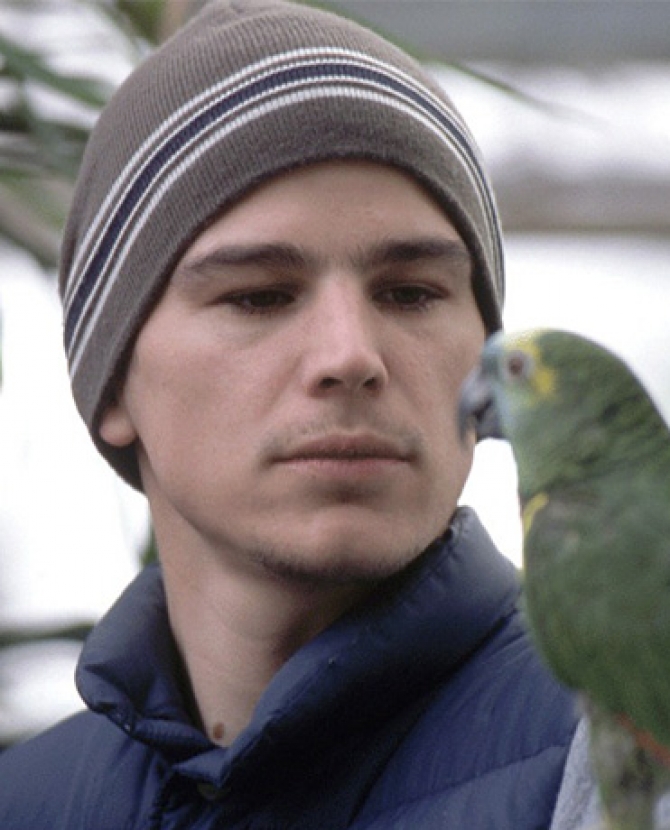
«Без ума от любви», «Розовая пантера», «Дежа вю» и другие
Сценарий к какому фильму вам кажется наиболее запоминающимся? «Земляничной поляны» авторства Ингмара Бергмана? «Дороги» Федерико Феллини? «400 ударов» Франсуа Трюффо? «Мужчины и женщины» Клода Лелуша? Тогда вас удивит наш рейтинг самых высокооплачиваемых сценариев.
На Высших курсах сценаристов и режиссеров Госкино СССР Андрей Тарковский объяснял своим ученикам, перефразировав народную пословицу, что «фильм — это один раз увидеть, а сценарий — это десять раз услышать«, поскольку совершенно невозможно записать кинематографический образ словами. Также мастер кино говорил, что настоящий сценарий не должен претендовать на статус законченного литературного произведения; он должен изначально задумываться как будущий фильм. Это правило было соблюдено богатейшими сценаристами Америки, среди которых Стив Мартин («Розовая пантера») и Джо Эстерхаз («Основной инстинкт») . Возможно, в этом и есть секрет их успеха?
10-ое место:
«История рыцаря»
Сценарий — $2.5 миллиона
Автор — Брайан Хелгеленд
Год — 2001
9-ое место:
«Без ума от любви»
Сценарий — $2.75 миллиона
Автор — Рональд Басс
Год — 2005
8-ое место:
«Розовая пантера»
Сценарий — $3 миллиона
Авторы —Лен Блум, Стив Мартин, Майкл Солтцмэн
Год — 2006
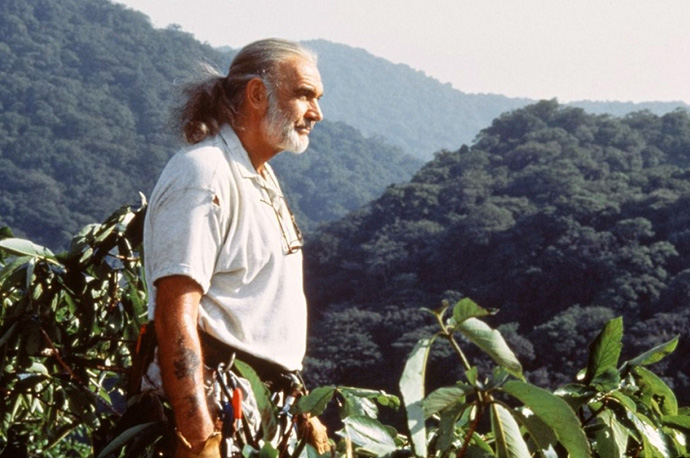
7-ое место
«Знахарь»
Сценарий — $3 миллиона
Автор — Том Шульман и Салли Робинсон
Год — 1992
6-ое место
«Основной инстинкт»
Сценарий — $3 миллиона
Автор — Джо Эстерхаз
Год — 1992
5-ое место
«Евротур»
Сценарий — $4 миллиона
Авторы — Алек Берг, Дэвид Мэндел, Джефф Шаффер
Год — 2004
4-ое место
«Рики Бобби: Король дороги»
Сценарий —$4 миллиона
Авторы— Уил Феррелл и Адам МакКэй
Год — 2006
3-0е место
«Комната страха»
Сценарий —$4 миллиона
Автор — Дэвид Кепп
Год — 2002
2-ое место
«Долгий поцелуй на ночь»
Сценарий —$4 миллиона
Автор — Шейн Блэк
Год — 1996
1-ое место
«Дежа вю»
Сценарий —$5 миллиона
Авторы — Билл Марсили и Терри Россио
Год — 2006
Для того, чтобы картина стала блокбастером, мало участия гениальных актеров и фантастических визуальных эффектов (хотя некоторые ходят в кинотеатр именно из-за них). Успех ленты зарождается на начальной стадии – когда сценаристу приходит в голову гениальная идея. Некоторые авторы заломили за свою работу очень высокую цену. Но стоила ли овчинка выделки?
Самые дорогие сценарии к фильмам: сколько стоит хорошая история
Сумасшедшая любовь и покушение на Белый дом
В случае с мелодраматической комедией «Без ума от любви» затраты себя не окупили. Да, в фильме снимался великолепный Джош Хартнетт, ну, и история была занимательной – о внезапно вспыхнувшей любви между двумя не совсем нормальными людьми: он – замкнутый «ботаник», она – гиперактивная болтушка. Роналд Бэсс получил за сценарий 2,7 млн., на сам фильм ушло 12 млн. долларов. При этом касса картины составила… около 85 тыс. долларов.
Сколько уже было снято лент о захвате святая святых Америки – Белого дома! Только в 2013-м году таковых вышло сразу два – «Падение Олимпа» и «Штурм Белого дома». Так вот, сценарист последнего заработал 3 млн. долларов. Браво, Джеймс Вандербилт! Но ни он, ни известный режиссер Роланд Эммерих не сумели сделать из ленты суперхит. Да, он окупил свой бюджет в 150 млн. долларов, собрав по миру 205 млн. Но это нельзя считать безоговорочным успехом.
Всесторонне талантливый Мартин и провал Коннери
Те же 3 млн. долларов ушло на сценарий для комедии 2006-го года «Розовая пантера». Правда, там и сценаристов была целая группа, включая исполнителя главной роли, блестящего комика Стива Мартина. Гонорар актера, к слову, составил 25 млн. (при общем бюджете фильма 80 млн. долларов). Кассовые сборы превысили затраты ровно вдвое. Но, право же, мы ждали от этой комедии большего!
Гораздо раньше – в 1992-м году на экраны вышла драма «Знахарь». Как удалось в те годы сценаристу Тому Шульману пристроить свою работу за 3 млн. долларов – непостижимо! Особенно, если учесть, что этот фильм провалился в прокате с треском (несмотря на харизму Шона Коннери, исполнявшего главную роль). Судите сами: бюджет – 40 млн., касса – 45 млн. долларов. Зато Том смог обогатиться!
Эротический триллер и последователь «Американского пирога»
Видимо, в 1992-м году был дефицит сценариев, раз студии раскошеливались на столь огромные суммы. Джо Эстерхаз тоже получил за свой труд 3 млн. Однако, это того стоило, фильм действительно стал легендой! Эротический триллер смог заработать в общей сложности почти 353 млн. долларов (при бюджете в 49 млн.). Триумф «Основного инстинкта» можно связывать с участием в нем Майкла Дугласа и неподражаемой Шэрон Стоун. Но, согласитесь, сюжет очень запутан и потому увлекает, спасибо Эстерхазу!
Подростковая, немного пошлая комедия «Евротур» не смогла «отбить» потраченные на нее деньги (20 млн. сборов против 25 млн. долларов бюджета). Вы удивитесь, если узнаете, что за эту сумасбродную историю ее авторы (Джефф Шеффер, Дэвид Мэндел, Алек Берг) запросили 4 миллиона! Да, там были очень смешные моменты, но что-то очень дорого они стоили продюсерам.
Детище Феррелла и триллер Финчера
Вот уж какому фильму, казалось бы, в этом рейтинге не место, так это «Рикки Бобби: Король дороги». При всем уважении к комедийному таланту Уилла Феррелла, 4 млн. за сценарий к этой картине (написанный тем же Ферреллом) – это перебор. Наверное, среди зрителей было очень много фанатов Уилла, поскольку с бюджетом 72,5 млн. долларов лента сумела заработать 163 млн.
«Комната страха» не относится к самым лучшим работам Дэвида Финчера, но в свое время (2002-й год) этот триллер сумел стать хитом (196 млн. долларов сборов при 48-ми миллионном бюджете). Сценарист Дэвид Кепп (на его счету такие легенды проката, как «Миссия невыполнима» и «Парк Юрского периода») получил 4 млн. не зря. Но другая составляющая успеха фильма – это игра Джоди Фостер.
Учительница-киллер и путешественник во времени
Для 1996-го года те же 4 миллиона за сценарий были немалой суммой. Именно столько заплатили Шейну Блэку за сценарий к «Долгому поцелую на ночь». Понятно стремление тогдашнего мужа Джины Дэвис, постановщика Ренни Харлина, снять свою супругу в крутом боевике с элементами триллера. Да, преображение милой учительницы в безжалостную киллершу смотрится здорово, и игра Дэвис на высоте. Но почему-то зрители это не оценили: касса фильма – 89,5 млн. долларов (а затраты на производство – 65 млн. долларов). Печально!
Самый дорогой сценарий в истории Голливуда (5 млн. долларов) превратился во вполне достойную картину с участием Дензела Вашингтона «Дежа вю». Поставил ее режиссер Тони Скотт, а тот самый сценарий написали Билл Марсили и номинант на «Оскар» (за анимационный фильм «Шрек») Терри Россио. Фантастический боевик с путешествиями во времени заработал 180,5 млн. (при бюджете 75 млн. долларов).
Сценарий — это один из главных компонентов фильма, который, по сути, фильмом и является, временно расположившимся на листке бумаги… Наверняка многим интересно, сколько стоит данный “лист”, поэтому мы решили разобраться в этом и дать точный ответ. Начнём! :)))
К полнометражному фильму?
Точной и единой для всего цены за сценарий никто назвать не сможет. Тут многое зависит от вложенных в съёмки средств. Таким образом фильм с бюджетом в 5 млн $ не сможет себе позволить сценарий за 3 млн $ и больше (так как средств на съемку, монтаж и т.д. — просто не останется).
Внимание – мы также покажем в конце статьи где заказывать сценарии по 500 рублей на русском языке !
Также, большую роль в ценообразовании сценария играет сценарист, который хочет продать этот самый сценарий.
- Если это довольно известная личность, то кинокомпании вряд ли приходится рассчитывать на суммы менее 500 тысяч долларов (!).
- Сценаристы-новички продают свои творения по гораздо более низким ценам (50-100К $).
Помимо всего прочего на стоимость сценария влияет и договорённость между “покупателем и продавцом”. То есть, между сценаристами и кинокомпаниями довольно часто возникают торги как в большую, так и в меньшую сторону. А иногда конкуренция между кинокомпаниями крайне высока, и они готовы купить сценарий к фильму за баснословные деньги (подробнее дальше).
В голливуде
В среднем, полнометражное кино голливуда длится около 80-100 минут. Таким образом сценаристу нужно написать 70-110 страниц текста. Однако в данном случае ключевым фактором является не объём текста, а раскрученность кинокомпании и сценариста.
Минимальные цены сценариев за всю историю киноиндустрии США составляют от 10 000$ и даже меньше. А что насчёт максимальных?
Приведем в качестве примера ТОП-3 дорогих сценария Голливуда:
- “Розовая пантера” — 3 000 000$ (общие затраты: 80 млн долларов);
- “Рикки Бобби: Король дороги” — 4 000 000 $ (бюджет фильма: 72 млн $);
- “Дежа вю” — 5 000 000 $ (на съёмку было затрачено 75 млн долларов).
Как видите, самый дорогостоящий сценарий в Голливуде стоил более 350 миллионов рублей(!).
В России?
Российские фильмы не финансируются столь огромными суммами, как, например, голливудские фильмы, поэтому и стоимость сценариев в РФ на порядок меньше.
К сожалению, точных цифр о стоимости сценариев для российских фильмов — нет. Единственный вариант для нас — это судить по мнению осведомленных в этой теме людей.
- Они утверждают, что минимальная цена за сценарий для отечественного кино составляет — 100 000 рублей. Стоит понимать, что это совсем сырой проект, без правок.
- Вполне реальной ценой за сценарий для российского фильма можно считать сумму в 2 000 000-4 000 000 рублей. Максимальные суммы, как мы уже писали, — неизвестны. Предположительно, более 100 МЛН рублей…
Какова цена сценария к короткометражному фильму?
Короткометражные фильмы могут сниматься не только режиссерами с 2-мя высшими образованиями, но и простыми людьми. Например, таким часто увлекаются ютуберы. В таком случае, вы можете обратиться к:
- Профессиональному сценаристу. Придётся выложить сумму не менее чем в 200-300 тысяч рублей, так как за заказы с меньшей ценой профессионалы даже не берутся. Подойдёт, если вы серьёзно подходите к делу и надеетесь получить выручку от своего фильма.
- К специальным агентствам. Они работают со многими небольшими заказами и берут с клиентов не столь высокие суммы. Вполне можно получить качественный сценарий за цену в пределах 50-100 тыс. Рублей.
- Фрилансерам. Наиболее бюджетный вариант из всех представленных. Идя по этому пути, вы сможете получить готовый сценарий со всеми правками за 15 000-40 000 рублей. Но, здесь придется поискать грамотного исполнителя.
Сценарий для “короткометражки” стоит существенно меньше, чем для полноценного фильма по целому ряду причин:
- Меньший объём текста (обычно всё вмещается на 3-5 листах А4);
- Более быстрое выполнение (достаточно сроков до недели):
- Простота в продумывании сценария (короткометражные фильмы, обычно, не нуждаются в точных исторических достоверностях и т.д.).
Если вы выбрали агентство для написания сценария, то обратите внимание на конечную сумму, так как зачастую, такие организации указывают очень низкие цены за минимальные услуги.
Для рекламного ролика?
В таких случаях пользователи обращаются к специалистам через их онлайн-сервисы. Для первичной оценки стоимости юзеру предлагается ввести некоторые данные о желаемом рекламном рролике (хронометраж, тематика и т.д.).
Пример: https://www.studiorec.ru/price/proizvodstvo_scenariya/
Еще одним важным критерием формирования цены является срочность проекта. В большинстве случаев исполнителю нужна как минимум неделя (или даже месяц). За срочность они обычно взимают дополнительную плату.
Итак, больше конкретики!
Стоимость сценария для небольшого рекламного ролика будет очень невелика (особенно, в сравнении с предыдущими вариантами).
- Расценки начинаются от 1 000 рублей (для простых реплик, несложной тематики) до 10 тысяч ₽ (песенный жанр, относительно длительный хронометраж и т.д.).
К мультфильму
Тут нет однозначного ответа… Во-первых, определимся о каком виде мультфильма идёт речь.
- Если это мультсериал, то написание сценария одной пятиминутной серии будет не очень обременительным для бюджета — около 100-150 тысяч рублей.
Ну а если это полнометражный мультфильм, то цена за его сценарий может превышать рубеж в миллион, и даже 10 миллионов рублей.
Во-вторых, также как и для фильмов, одним из главных критерием цены является общий бюджет мультфильма.
К примеру, дисней затратил около 260 МЛН $ при создании мультфильма “Рапунцель: Запутанная история”. И стоимость сценария для него, скорее всего, превышала отметку в 1 000 000 $.
Чтобы разработать сценарий визуальной новеллы, заказчику потребуется выложить минимум 5 тысяч рублей. Для примера, исполнитель на бирже фриланса: https://freelancehunt.com/project/stsenarist-dlya-vizualnoy-novellyi/598397.html
Также вы можете заказать на бирже Кворк за 500 рублей
К сериалу?
Цена за сценарий для сериала формируется также, как и цена за сценарий для кинофильма. Единственным его отличием является то, что сценарий для сериала — гораздо объёмнее, так как в нём, в основном, происходят диалоги между актерами.
Однако, зачастую, сериалы — это бытовые сцены, где не требуется использованием различных спецэффектов, поэтому они обходятся дешевле.
На этом всё! А есть ли у вас какой-нибудь любимый фильм? Может быть, вы хотели что-либо изменить в его сценарии? Оставляйте своё мнение в комментариях!
Загрузка…
Успех фильма складывается из множества деталей: мастерства режиссера, операторской и актерской работы, популярности занятых в нем звезд и маркетинга. Считаю, что главенствующую роль играет сценарий. Как показывает практика, порой сценарий может в буквальном смысле озолотить его автора, однако стоимость рукописи, как опять же показывает практика, отнюдь не гарантирует фильму успех в прокате. Перед вами 10 самых дорогих сценариев в истории кино…
История рыцаря (A Knight’s Tale) — 2,5 миллиона долларов
Опытный сценарист Брайан Хелгеленд, работавший над сценариями таких лент как «Убийцы», «Секреты Лос-Анджелеса», «Теория заговора», «Расплата», продал сценарий «Истории рыцаря» за 2,5 миллиона. При этом он сам был и режиссером.
Но что-то пошло не так — и в итоге при бюджете 65 миллионов долларов лента собрала в США всего 56 миллионов, даже несмотря на Хита Леджера, исполнившего главную роль. Впрочем, мировые сборы — почти 117,5 миллионов — все же спасли фильм от финансового провала.
Без ума от любви (Mozart and the Whale) — 2,75 миллиона
Роналд Бэсс — автор сценария великолепной драмы «Человек дождя» с Томом Крузом и Дастином Хоффманом. Сценарий Бэсса для трогательной ленты «Без ума от любви», также рассказывающей о людях с аутизмом, увы, фильм спасти не смог, хотя и принес автору 2,75 миллиона. При 12-миллионном бюджете картина собрала всего 36 тысяч в США, в мире — 85 тысяч долларов.
Розовая пантера (The Pink Panther) — 3 миллиона
Исполнивший в фильме главную роль незадачливого инспектора Клузо комик Стив Мартин помимо актерского гонорара в размере 25 миллионов долларов получил неплохой бонус — 3 миллиона за работу над сценарием «Розовой пантеры». Нельзя сказать, что ленту ждал оглушительный успех, но затраты окупились — при бюджете 80 миллионов фильм собрал 82 миллиона в США и и еще 76,5 миллионов в мире.
Знахарь (Medicine Man) — 3 миллиона
Том Шульман получил заказ на сценарий «Знахаря» стоимостью 3 миллиона долларов после успеха фильма «Общество мертвых поэтов». Для 1992 года это была немыслимая сумма, однако хитом «Знахарь» так и не стал, хотя поклонники Шона Коннери, сыгравшего там главную роль, этот фильм помнят и любят.
Основной инстинкт (Basic Instinct) — 3 миллиона
В 1992 году, когда Джо Эстерхазу поручили написать сценарий к «Основному инстинкту», он был уже известным и дорогим сценаристом и продюсером. Свой первый миллион за сценарий он получил еще в 80-е и лучшего мастера закручивать криминально-эротическую интригу в Голливуде на тот момент, пожалуй, не было.
Правда, последующие работы Эстерхаза, стоившие студиям от 1 до 2,5 миллионов, такого ажиотажа не вызвали, а некоторые и вовсе с треском провалились в прокате. В том числе и «Основной инстинкт 2», собравший в мировом прокате всего 38,5 миллионов при 70-миллионном бюджете.
Евротур (EuroTrip) — 4 миллиона
Те, кто заплатили 4 миллиона за сценарий этой молодежной комедии, очень просчитались. Пусть фильм и не так плох, как ставший образчиком жанра «Американский пирог», но последний вложенные деньги все же окупал, а вот «Евротуру» не удалось собрать даже потраченное — при 25-миллионном бюджете в общемировом прокате лента едва «наскребла» 20,7 миллиона.
Рики Бобби: Король дороги (Talladega Nights: The Ballad of Ricky Bobby) — 4 миллиона
Фильм Адама МакКея с Уиллом Ферреллом в главной роли в США приняли на ура. Так что заплаченные режиссеру и исполнителю главной роли деньги за весьма слабый и изобилующий штампами сценарий не пропали зря — только в американском прокате он собрал 148 с лишним миллионов (бюджет — 72,5 млн). А вот зрители других стран сюжетом про лихого гонщика явно не впечатлились, итог — 14,7 миллиона.
Комната страха (Panic Room) — 4 миллиона
Тот случай, когда и 4 миллиона не жалко. Интересно, что сценарист Дэвид Коепп придумал сценарий после того, как прочитал статью о «безопасных комнатах» и застрял в лифте своего дома, и был так впечатлен, что написал черновой вариант сценария за шесть дней. При бюджете 48 миллионов общемировые сборы составили 196 миллионов долларов.
Долгий поцелуй на ночь (The Long Kiss Goodnight) — 4 миллиона
Шейн Блэк прославился сценариями к «Смертельному оружию», он же — автор сценария «Последнего бойскаута». Неплохой в целом фильм о потерявшей память учительнице (которая, как выясняется, раньше была штатным киллером ЦРУ, но забыла об этом) американская публика приняла довольно прохладно.
При бюджете в 65 миллионов на «родном» рынке картина заработала всего 33 миллиона долларов, еще 56 миллионов принес зарубежный прокат. Кстати, вот-вот на экраны выйдет третья часть «Железного человека», где Блэк выступил режиссером.
Дежа вю (Deja Vu) — 5 миллионов
Сценарий к фантастическому триллеру «Дежа вю» — самый дорогой на данный момент — принес 5 миллионов голливудским сценаристам Терри Россио и Биллу Марсилли. Суперблокбастера из «Дежа вю» не вышло, что даже обидно — фильм без сомнений куда выше среднеголливудского уровня. Кассовые сборы в мире составили 180 миллионов при бюджете в 75 млн.
| 2leep.com |
Рекорды ставят не только профессиональные спортсмены. Авторы фильмов тоже невольно вступают в соревнования. А созданные ими картины бьют рекорды мирового кинематографа.
Самый дорогой фильм
Бюджет третьей части «Пиратов Карибского моря», вышедшей в 2007-м, составил 300 млн долларов. Это сделало картину самым дорогостоящим проектом мирового кинематографа. При этом в прокате лента собрала больше 900 миллионов.
Самый дорогой сценарий
В 2005-м на аукционе был продан экземпляр сценария «Крестного отца», принадлежащий Марлону Брандо. На его страницах были пометки, которые сделал лично актер. Цена лота составила 312 тыс. долларов.
Первый ремейк, заслуживший «Оскар»
В 2006 году Мартин Скорсезе снял ремейк гонконгского боевика «Двойная рокировка». В результате его «Отступники» завоевали сразу 4 премии «Оскар», в том числе как лучший фильм.
Самый быстрый миллиард в прокате
Общие сборы 7-й части «Форсажа» превысили 1,5 млрд долларов. Именно этот фильм быстрее всего отбил первый миллиард в прокате – в течение 17 дней после выхода в кинотеатрах.
Самая дорогая обувь
Дороже всего были проданы на аукционе туфли, которые героиня Джуди Гарлэнд носила в «Волшебнике страны Оз». Стоимость лота составила 666 тыс. долларов.
Самый молодой режиссер
Над картиной Love You Baba непальский вундеркинд Согат Биста начал работать, когда ему было 7 лет.
Самые длинные титры
Этот рекорд принадлежит ленте «Клерки-2». В титрах насчитывается больше 163 тысяч фамилий.
Больше всего жертв
Если сравнивать число погибших персонажей, то несомненным лидером является третья часть франшизы «Властелин колец». В «Возвращении короля» умирают 836 героев. Лента побила рекорд второй части, в которой насчитывается 468 жертв.
Больше всего статистов
Число статистов, которых задействовали при съемках финального эпизода похорон в фильме «Ганди», составляет не менее 300 тысяч.
Самая пожилая актриса в главной роли
Лиллиан Гиш исполнила главную роль в «Августовских китах» в возрасте 93 лет.
Наиболее масштабная батальная сцена
«Властелин колец» вновь выбился в рекордсмены. Во всех частях франшизы присутствуют масштабные эпизоды, в которых снимались 200 тыс. человек.
Больше всего разрушений во время погони
Когда снимался эпизод в ленте «Старьевщик», создатели повредили больше 150 единиц транспорта. Для съемок задействовали не только машины, но и самолеты, а также лодки.
Первый официальный саундтрек
В анимационной картине 1937 года «Белоснежка и семь гномов» впервые был использован официальный саундтрек. Его выпустили в то же время, когда мультфильм вышел на экраны.
Самый дорогостоящий постер
Фантастическая немецкая драма «Метрополис» вышла в 1927 году. А в 2005-м представители лондонской галереи приобрели плакат к фильму за рекордные 690 тыс. долларов.
Самый дорогой проект, основанный на компьютерной игре
Мультипликационный фильм «Последняя фантазия» основан на одноименной серии игр. Для создания ленты потребовалось 130 млн долларов. Мировые сборы составили только 85 миллионов.
Номинация на «Оскар» с самым коротким названием
В 1969-м на экраны вышла лента «Z» или «Дзета» в русском переводе. Триллер выдвигался в 5 номинациях и в результате получил 2 «Оскара».
Больше всего нецензурной брани
Канадский фильм «Срам-ТВ», вышедший в 2014-м, насчитывает в общей сложности 868 ругательных слов.
Первое аниме, получившее «Оскар»
Культовая лента «Унесенные призраками» стала первым аниме с победой в категории «Лучший анимационный фильм».
Первое голливудское кино
Первым официальным проектом, который снимали в Голливуде, стала лента 1910-го «В старой Калифорнии».
Лучшие сборы спортивного фильма
Этот рекорд установила франшиза «Рокки» с Сильвестром Сталлоне. Сумма сборов в общей сложности превысила 1,2 млрд долларов.
Самые дорогие сценарии проданные с молотка
(10 фото)
Самое главное в кинокартине не спецэффекты и даже не актеры, а цельная и увлекательная история. За запоминающимися персонажами и их захватывающими приключениями стоят сценаристы. И как оказалось после съемок некоторые сценарии выкупают за кругленькую сумму.
Парк юрского периода
Писатель-фантаст и сценарист Майкл Крайтон оценил свой сценарий к классическому «Парку юрского периода» 1993 года в 1,5 миллиона долларов (94 млн рублей). Крайтон определенно знал, какого успеха добьется его история. Не зря он дополнительно получил часть средств от проката — только в США сборы ленты составили 400 миллионов долларов.
История рыцаря
Источник:
За сценарий «Истории рыцаря» 2001 года его автор Брайан Хелгеленд получил 2,5 миллиона долларов (156 млн рублей). Сборы фильма в США составили 56 миллионов долларов, что на 10 млн меньше его бюджета.
Без ума от любви
Источник:
Стоимость сценария романтической драмы «Без ума от любви» (2005) от Роналда Бэсса — 2,75 млн долларов (172 млн рублей). Но это тот самый случай, когда вложенные средства не оправдали больших ожиданий. С бюджетом в 12 млн долларов картина собрала в прокате всего 36 тысяч долларов.
Знахарь
Источник:
Том Шульман продал сценарий картины «Знахарь» 1992 года за 3 миллиона долларов (188 млн рублей). Однако, фильм не набрал ожидаемой популярности. С бюджетом в 40 млн долларов он собрал в прокате 45 миллионов.
Основной инстинкт
Источник:
Легендарный «Основной инстинкт» (1992) в свое время побил рекорды проката, собрав 118 млн долларов в США. Первоначальный бюджет ленты составил 49 миллионов. Автор хитового сценария Джо Эстерхаз получил за работу 3 млн долларов (188 млн рублей).
Евротур
Источник:
С бюджетом в 25 млн долларов «Евротур» 2004 года собрал в американском прокате слабенькие 17 миллионов. При этом автору сценария Алеку Бергу заплатили 4 миллиона долларов (251 млн рублей).
Долгий поцелуй на ночь
Источник:
За сценарий картины «Долгий поцелуй на ночь» 1996 года сценарист Шейн Блэк попросил 4 миллиона долларов (251 млн рублей). В прокате США фильм собрал 33 миллиона, но изначально в него вложили 65 миллионов долларов.
Рики Бобби: Король дороги
Источник:
Сценарий к комедии «Рики Бобби: Король дороги» 2006-го написал сценарист Уилл Феррелл, который получил за историю 4 миллиона долларов (251 млн рублей). С бюджетом 72 млн, картина имела успех: она собрала в американском прокате больше 148 миллионов долларов.
Комната страха
Источник:
Сценарист Дэвид Кепп оценил свой сценарий к фильму «Комната страха» 2002 года в 4 миллиона долларов (251 млн рублей). Триллер с участием Джоди Фостер и молодой Кристен Стюарт и бюджетом 48 миллионов собрал в прокате США 96 миллионов долларов.
Дежавю
Источник:
У фильма «Дежавю» 2006 года с Дензелом Вашингтоном рекордная для нашего списка стоимость сценария — авторы Билл Марсили и Терри Россио получили за него 5 миллионов долларов (314 млн рублей). Изначально бюджет фильма составил 75 млн долларов. В американском прокате боевик собрал 64 миллиона.
Источник:

